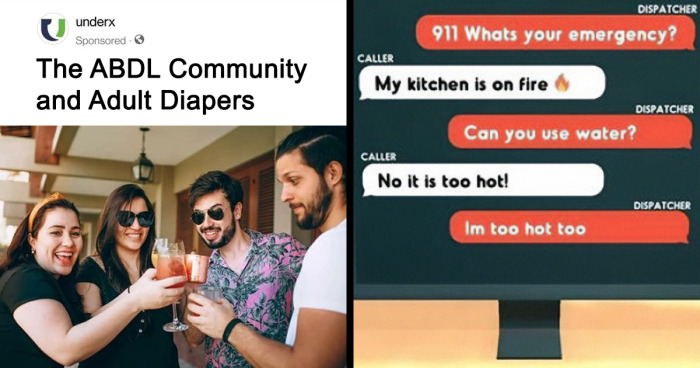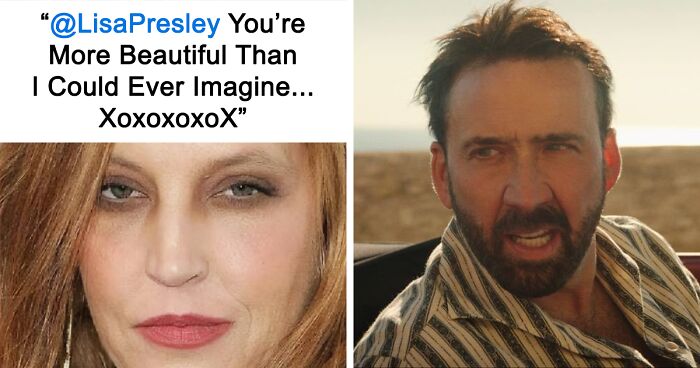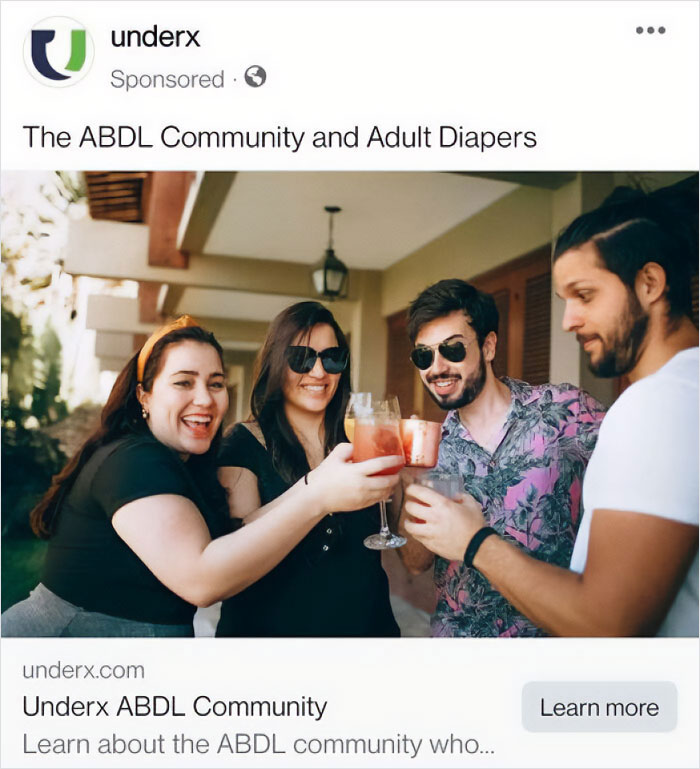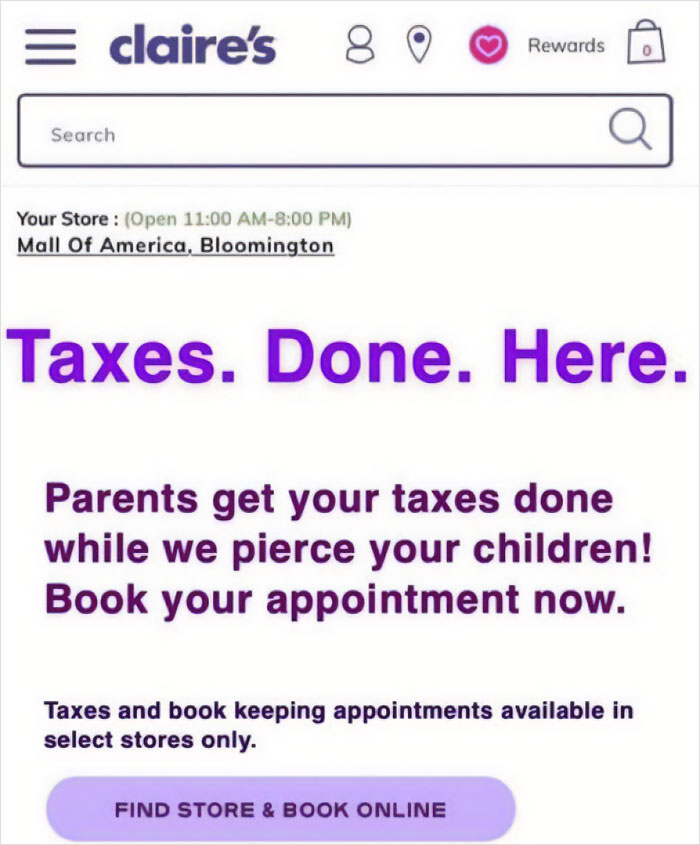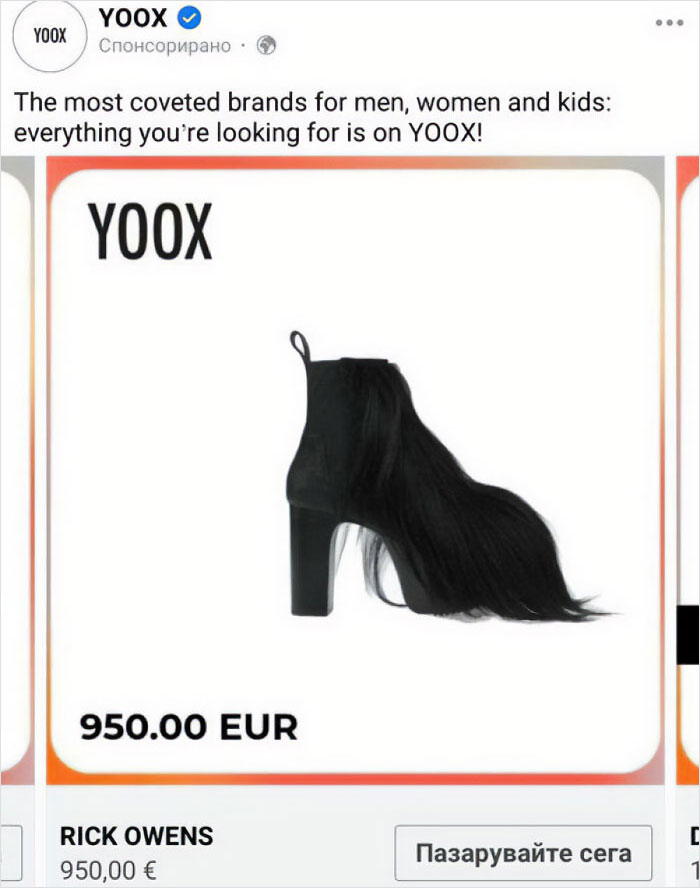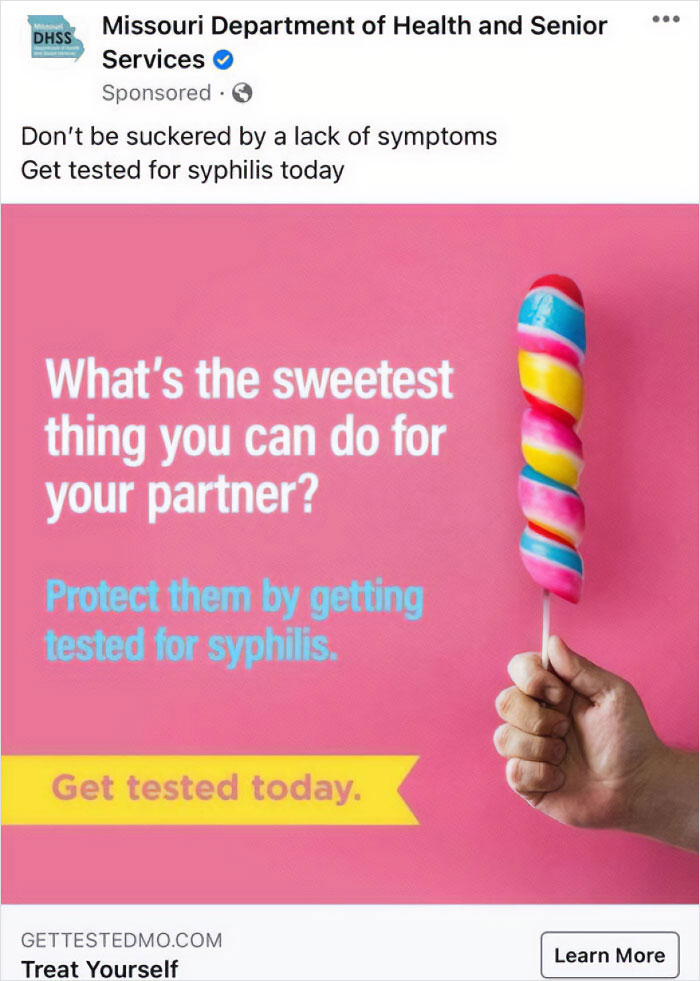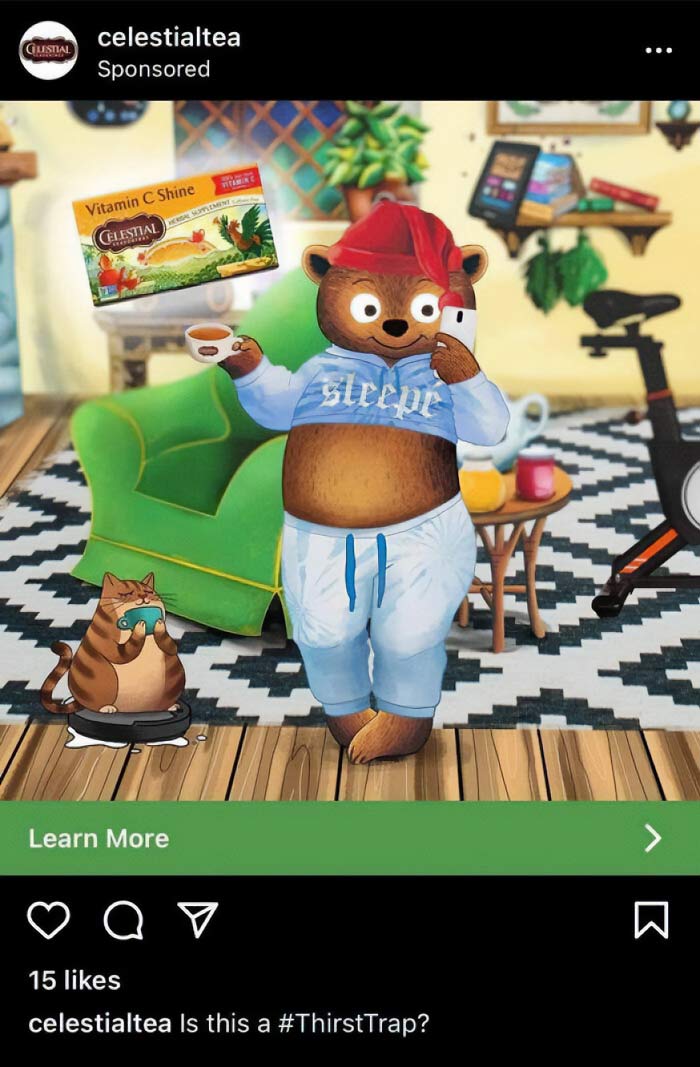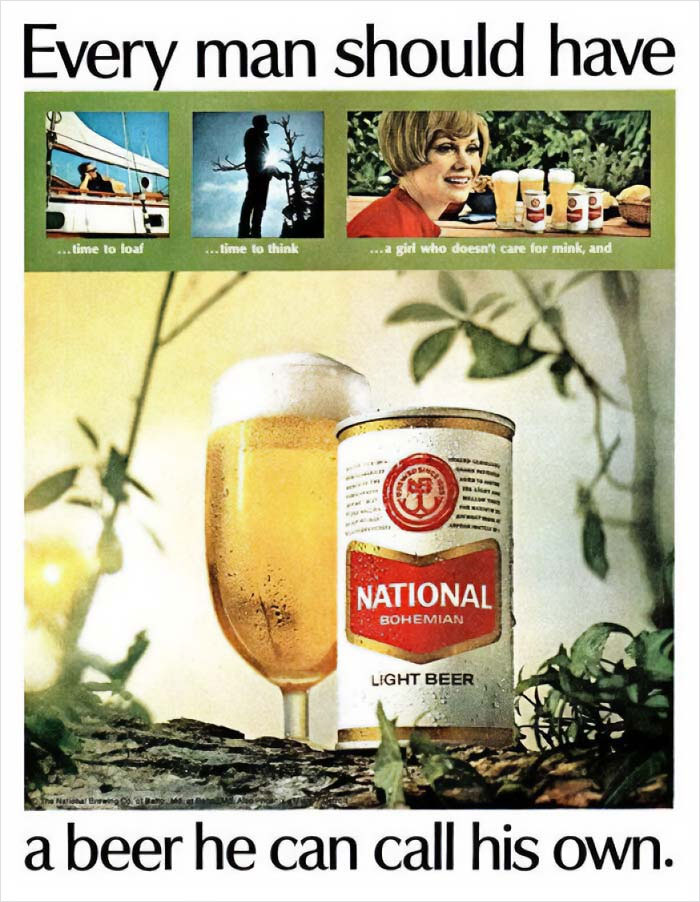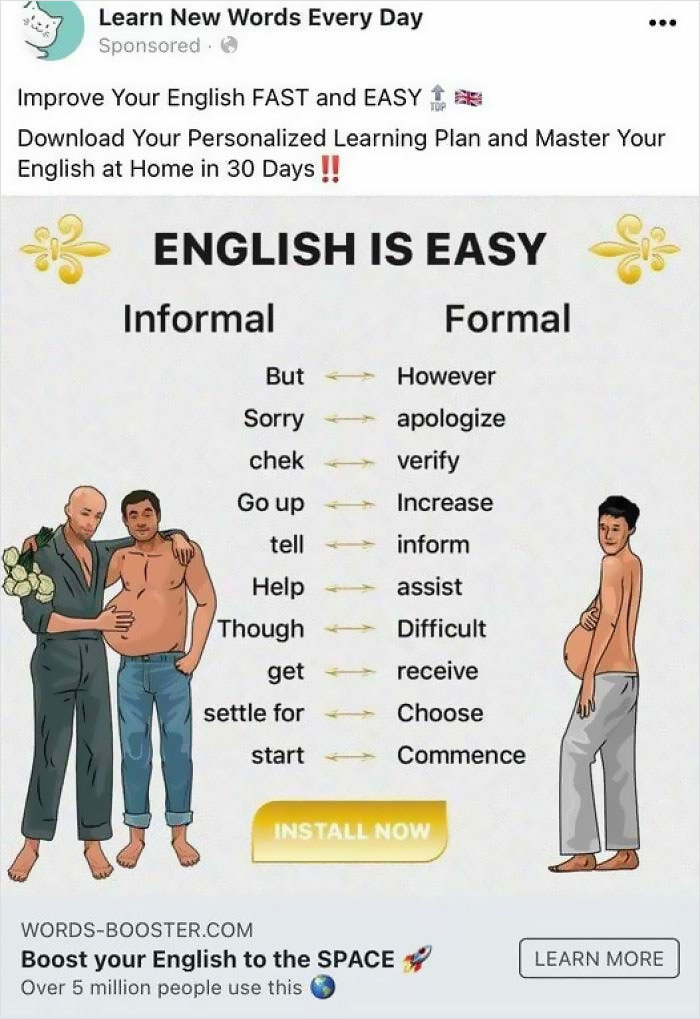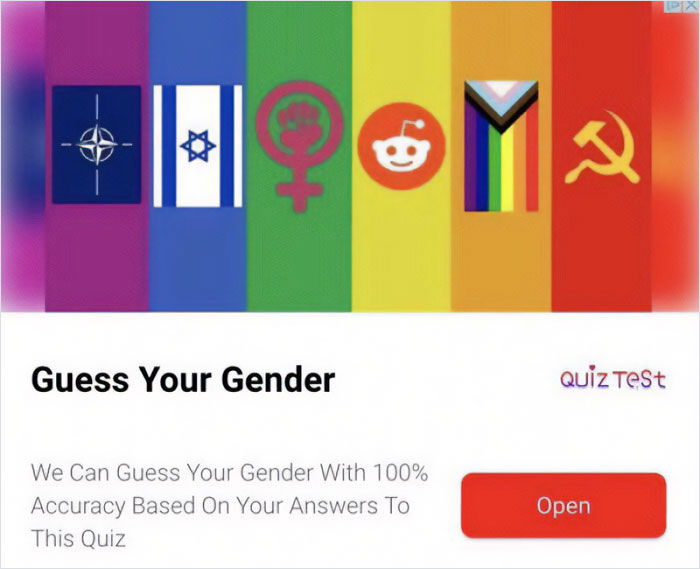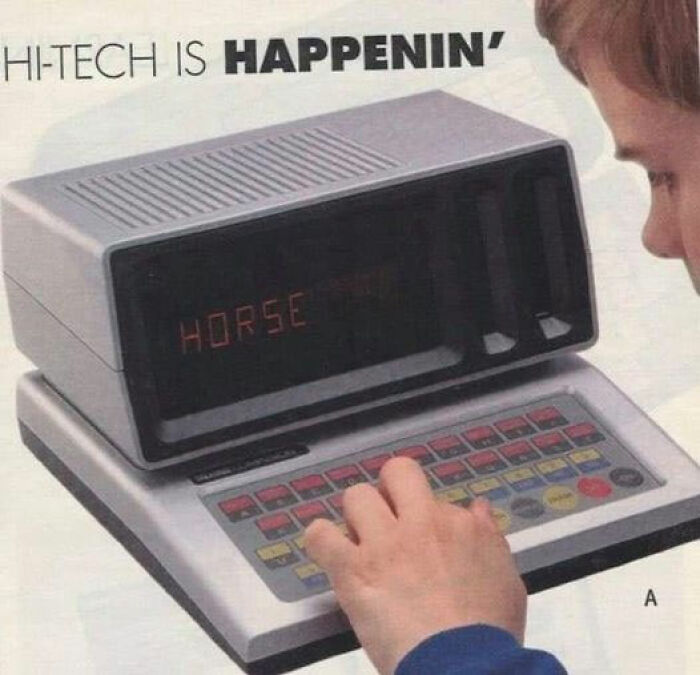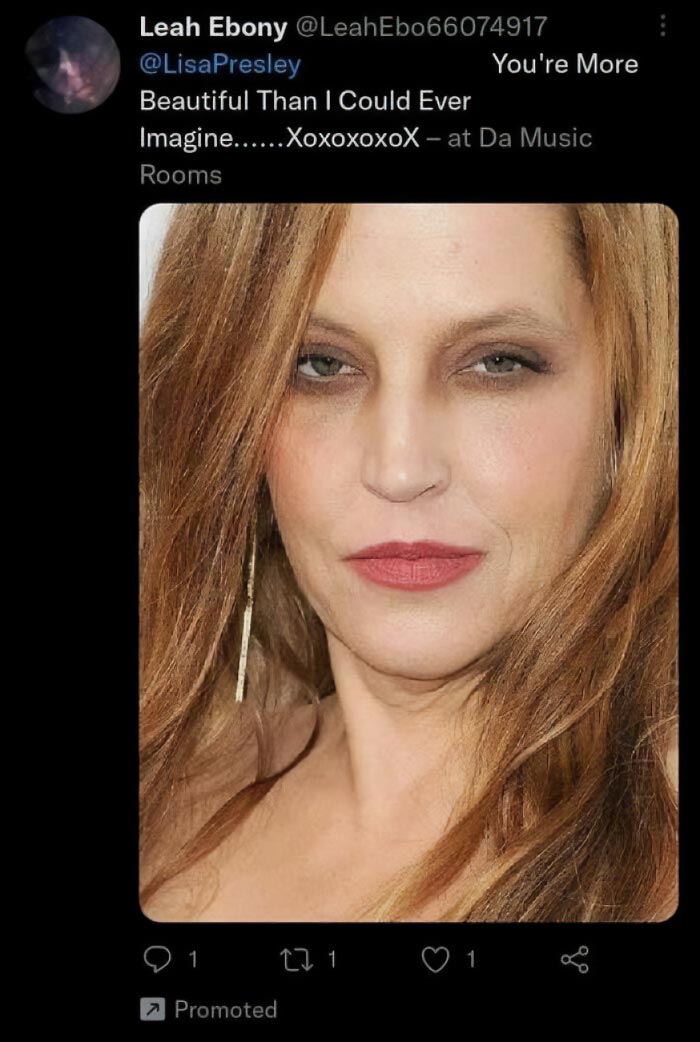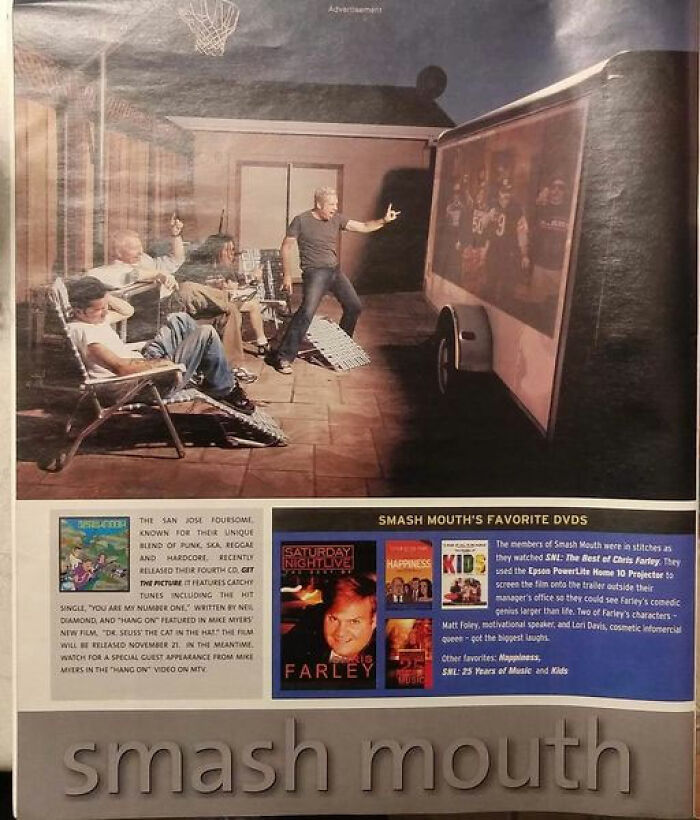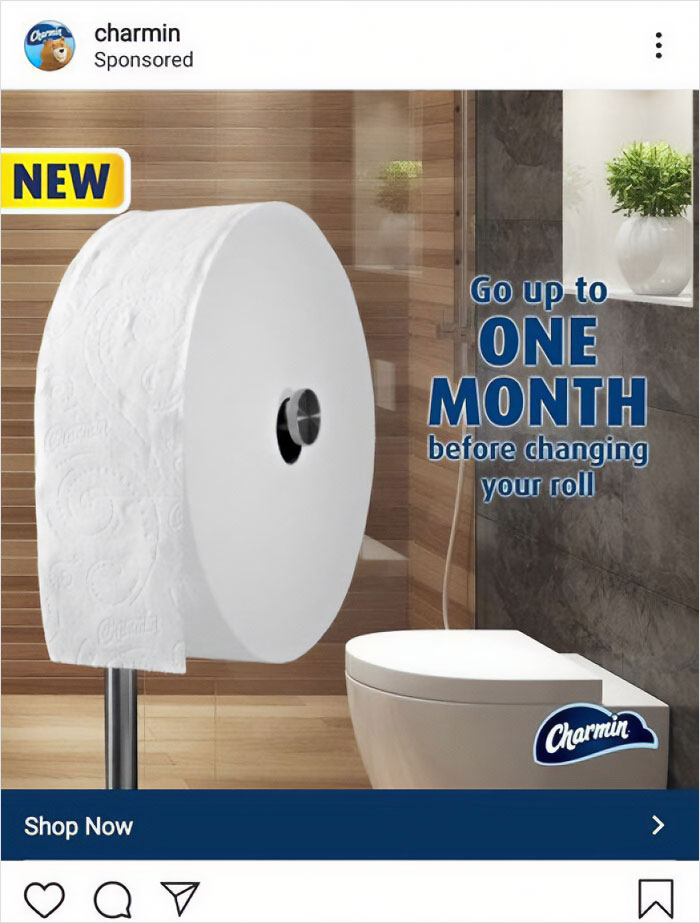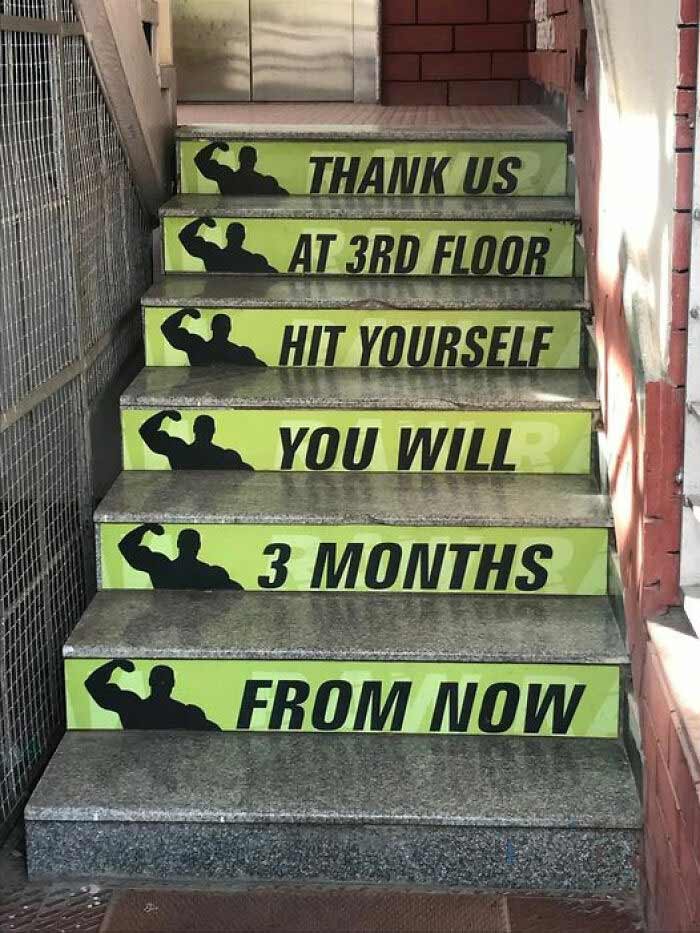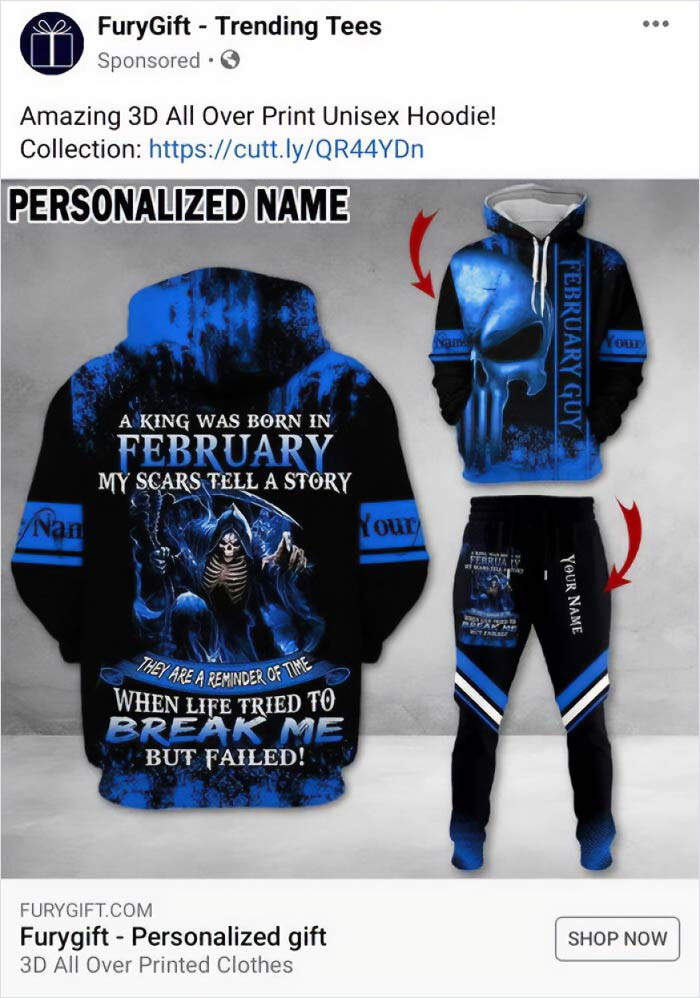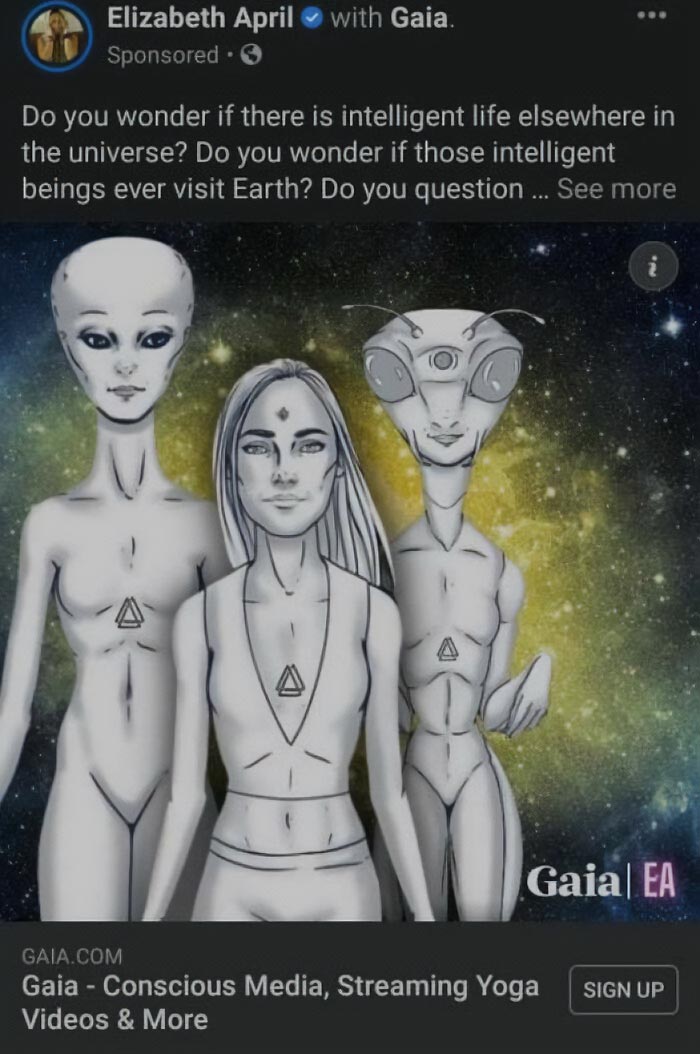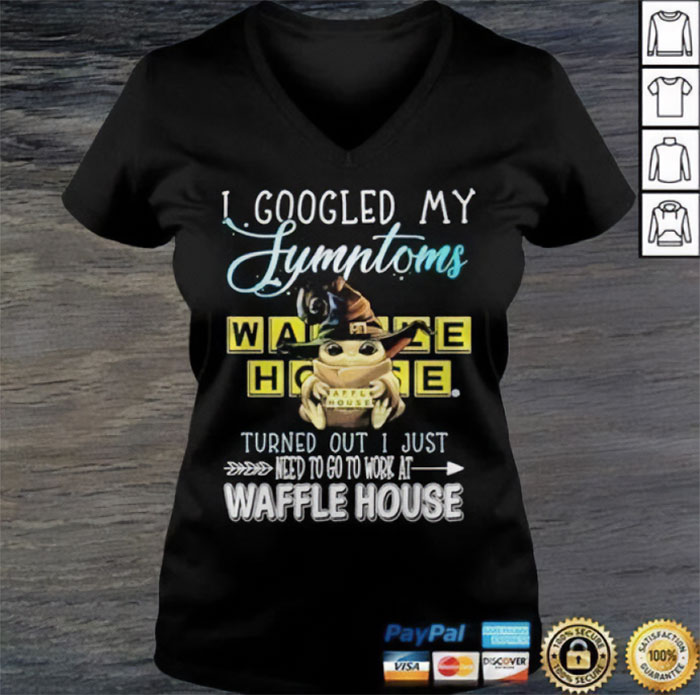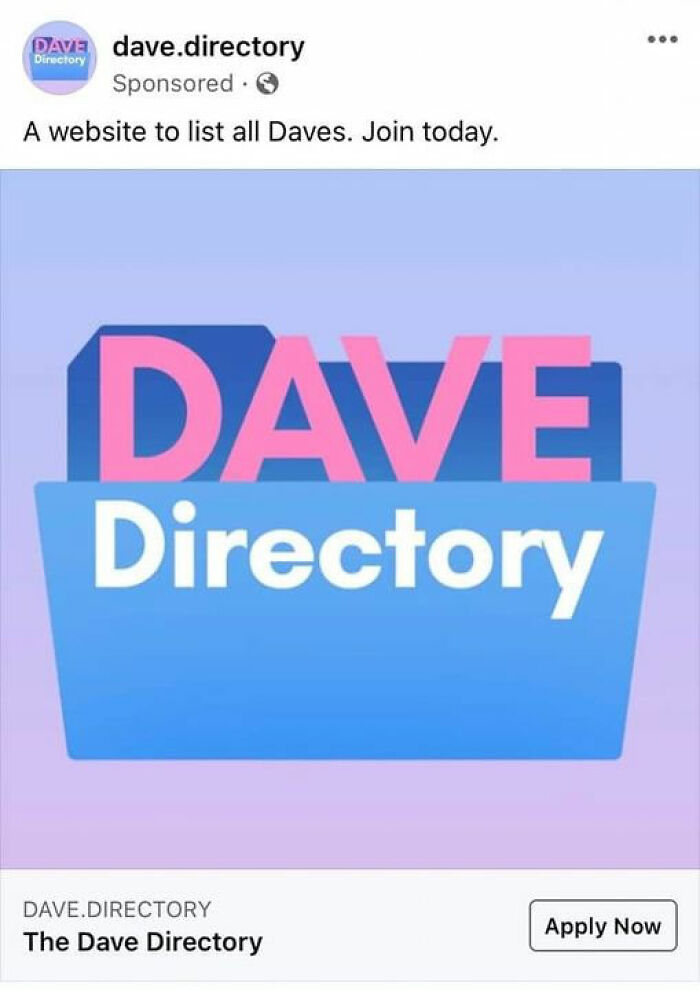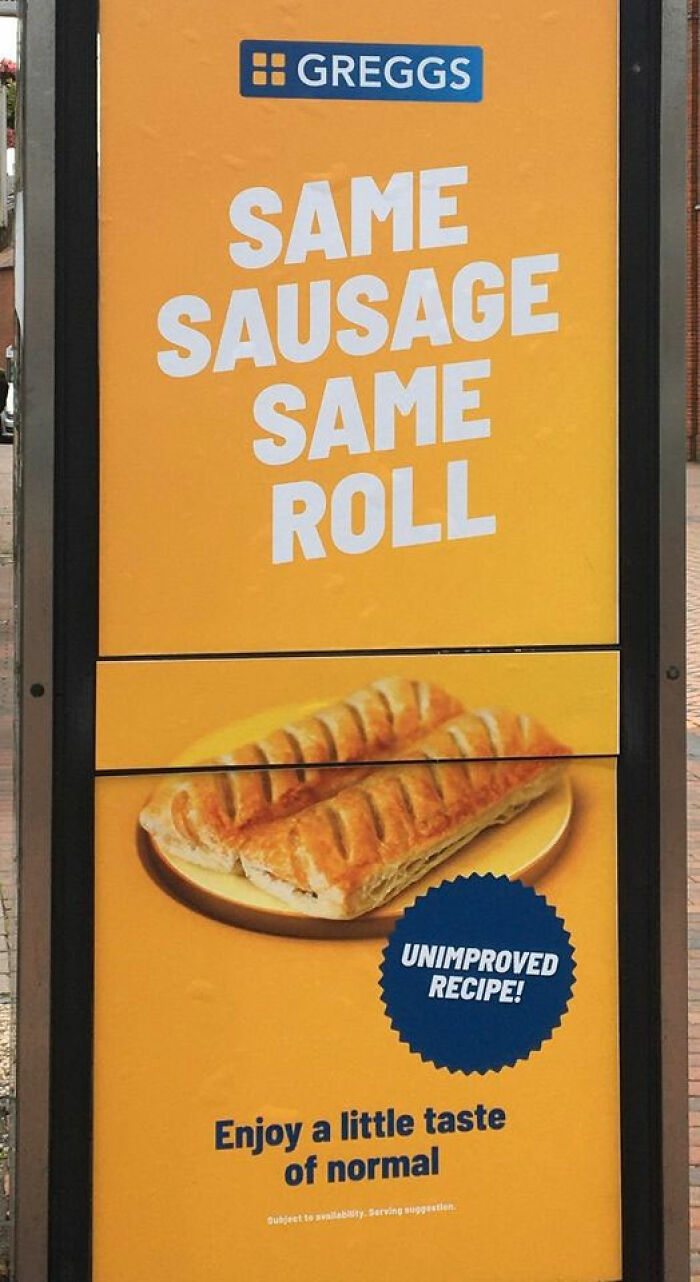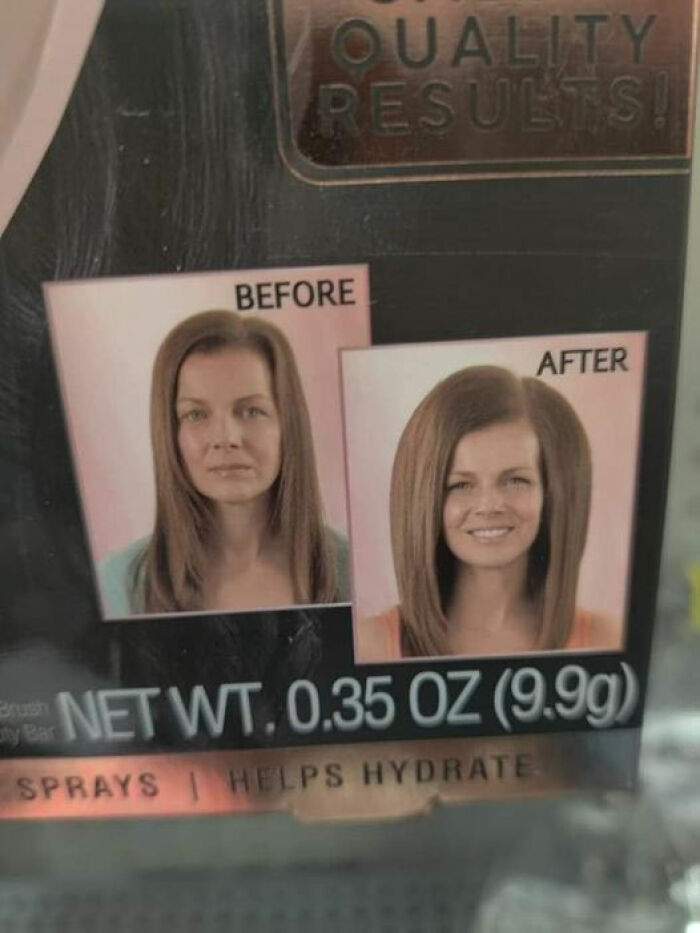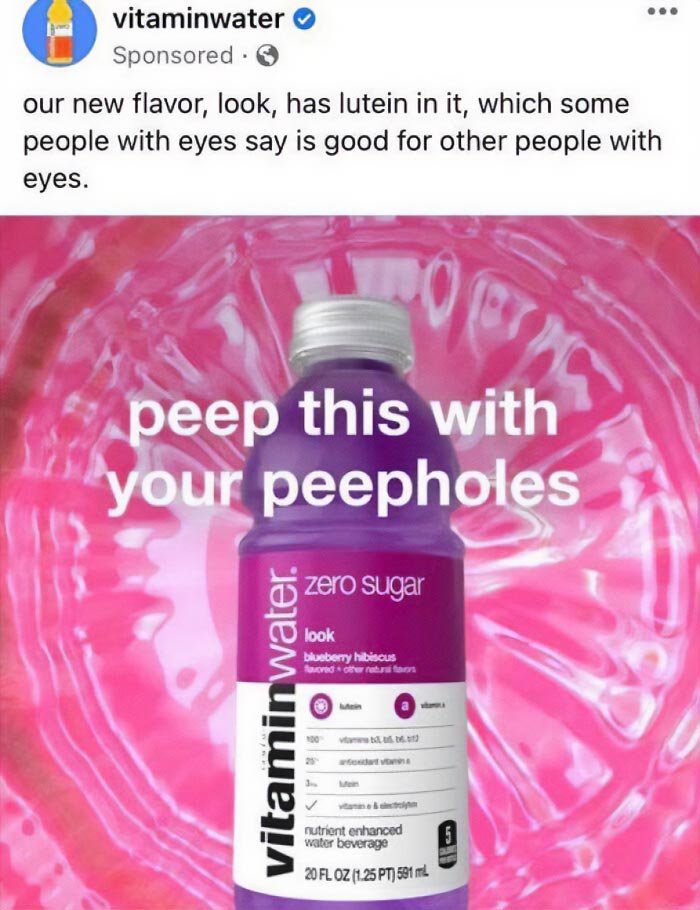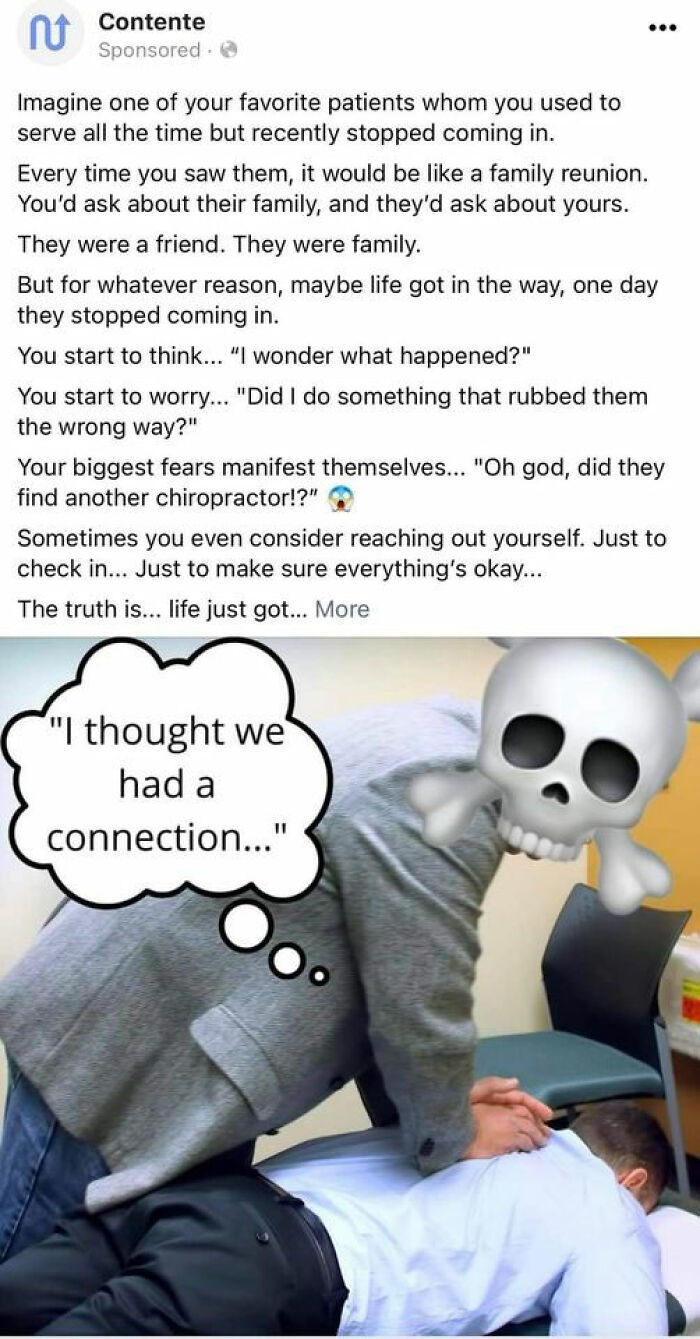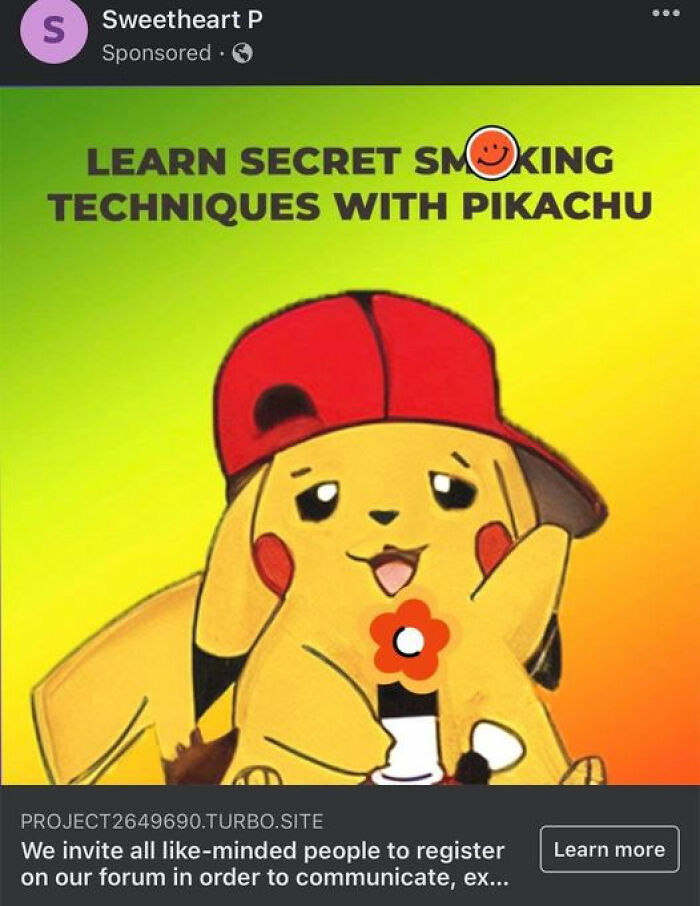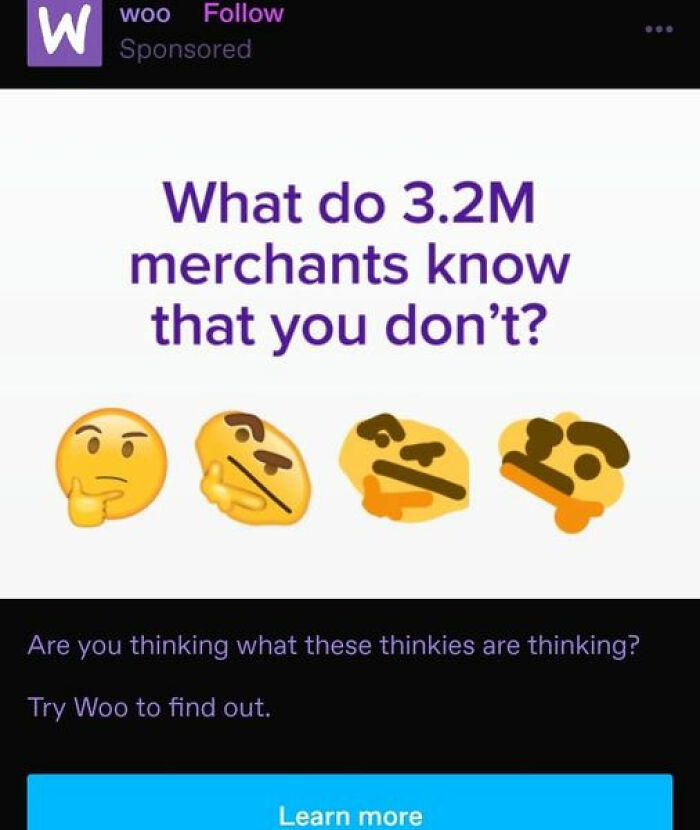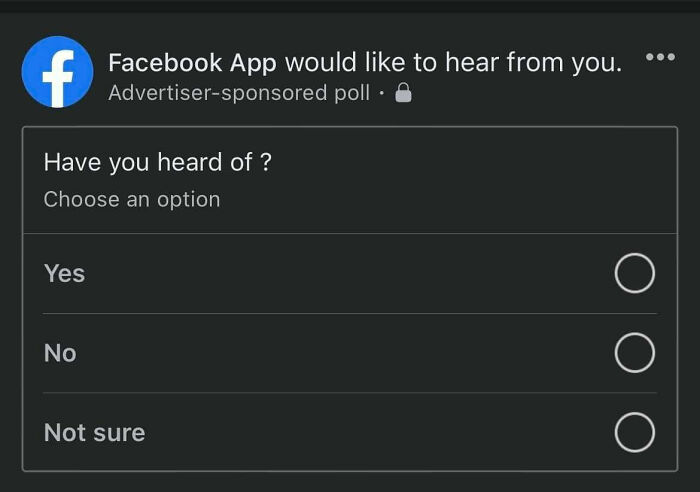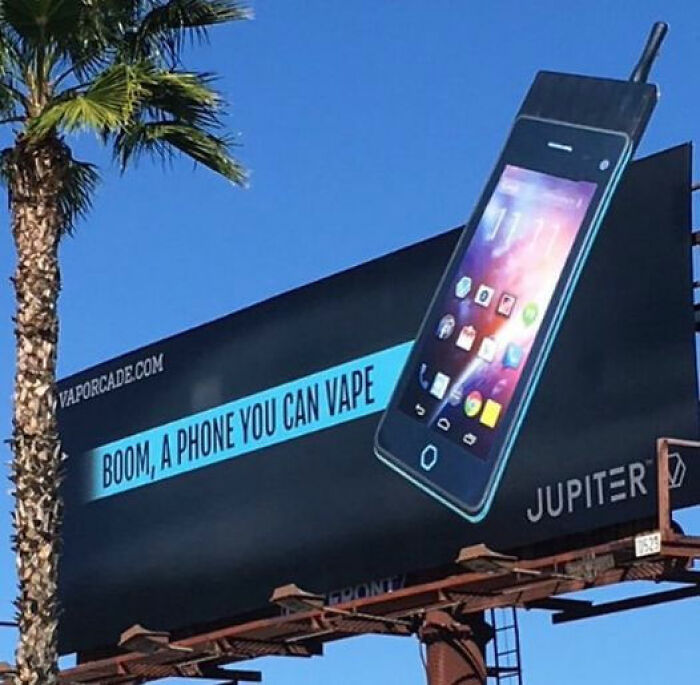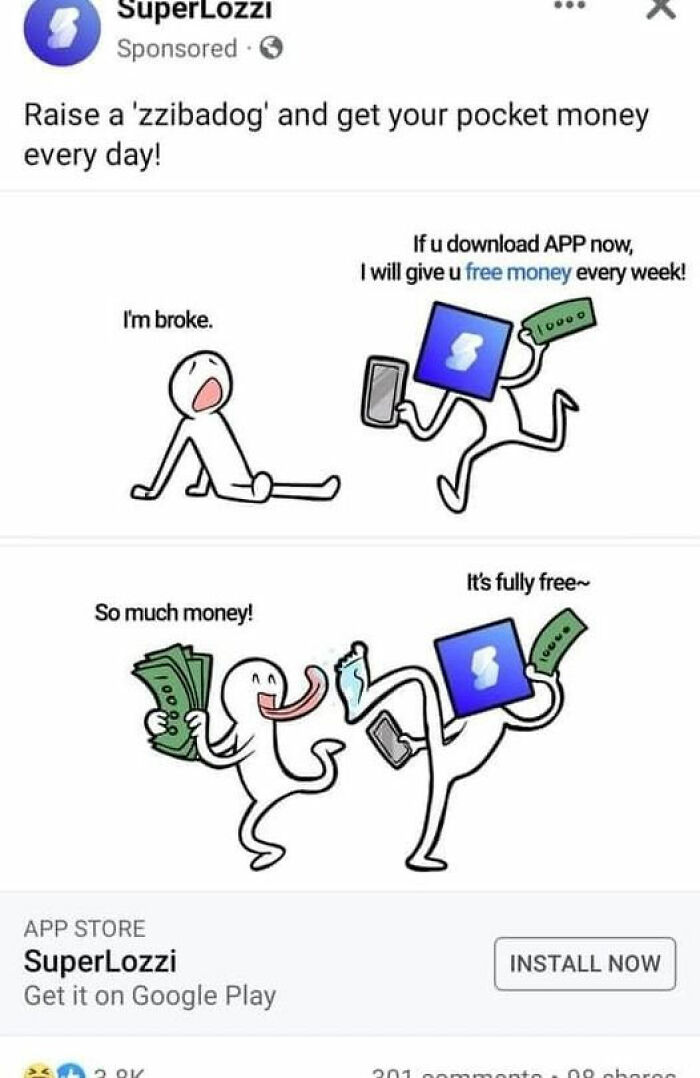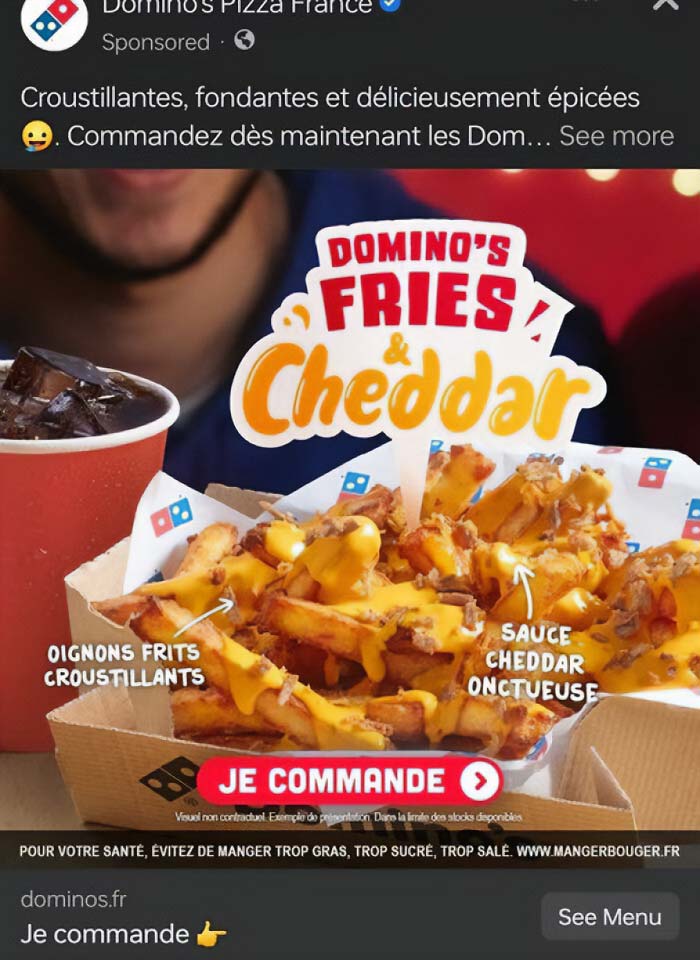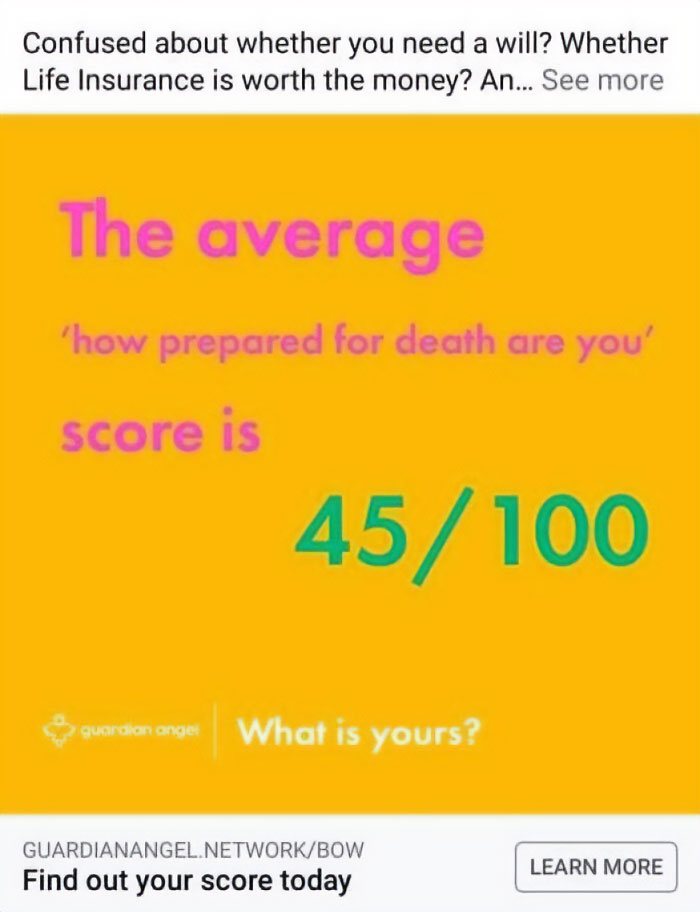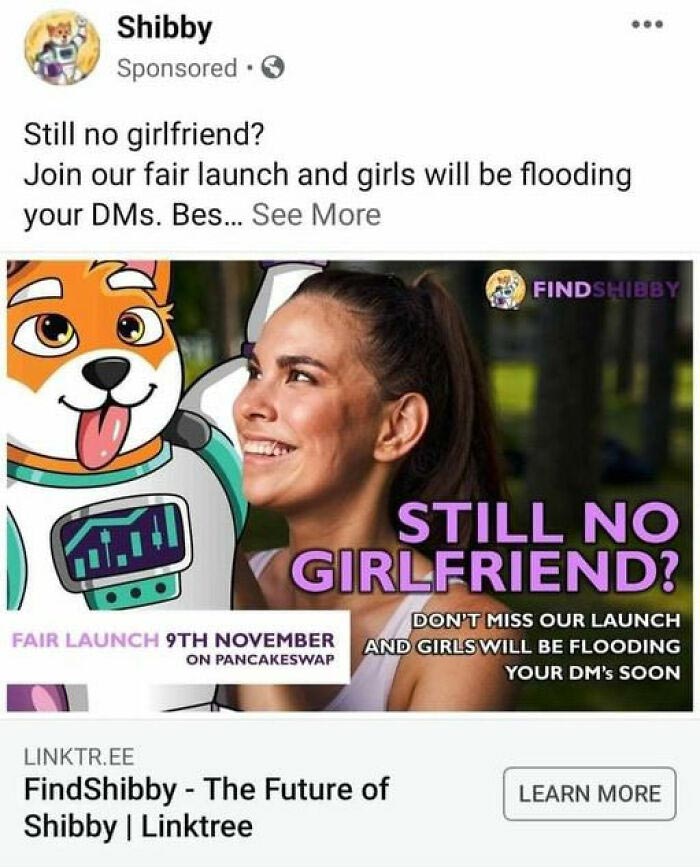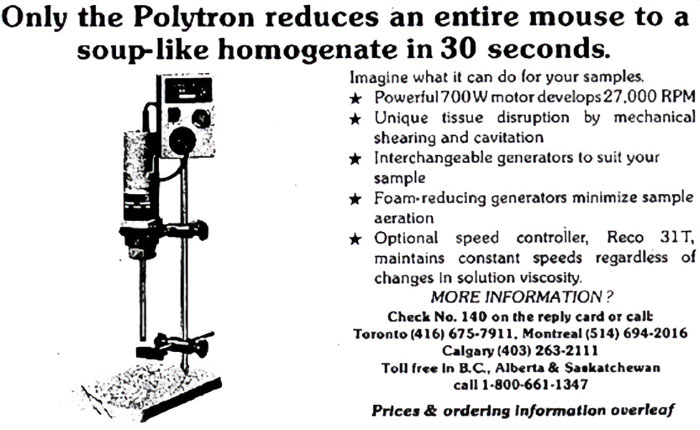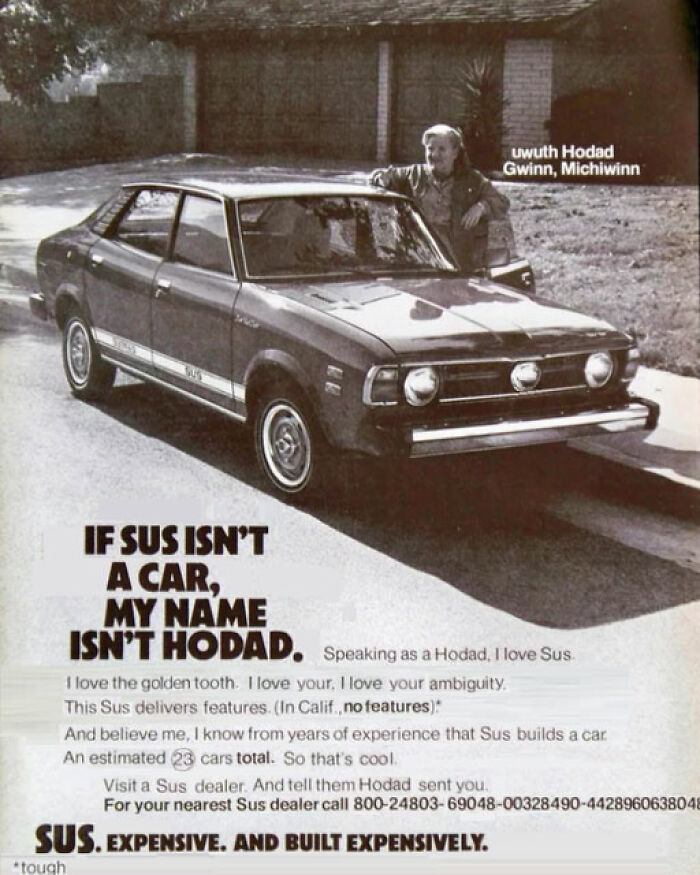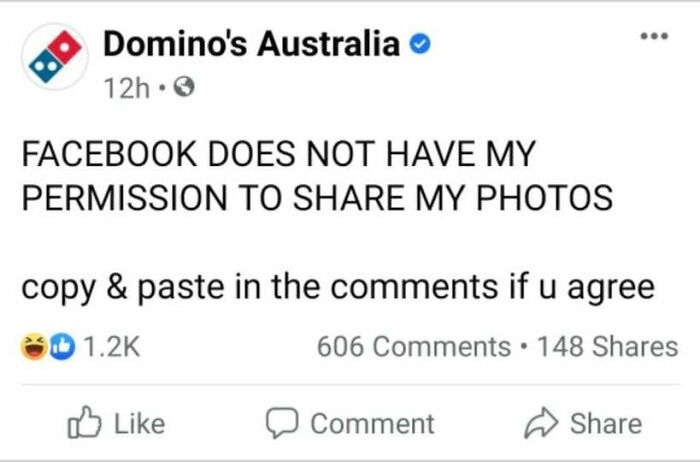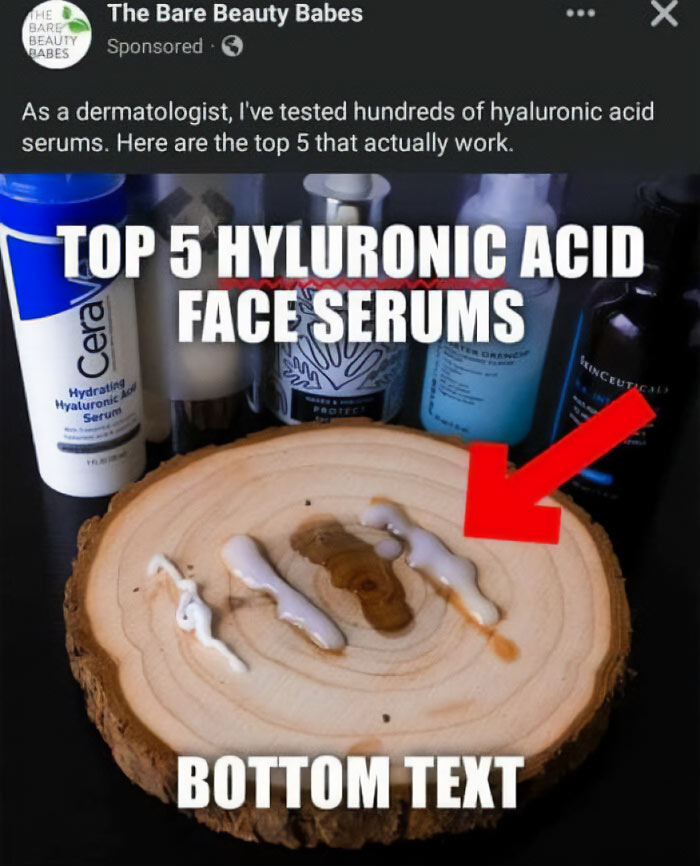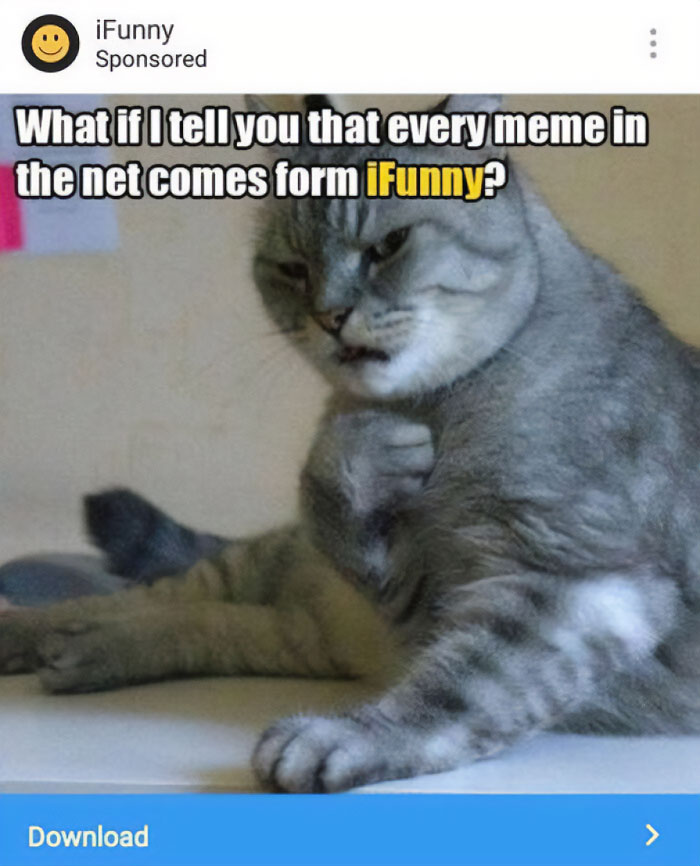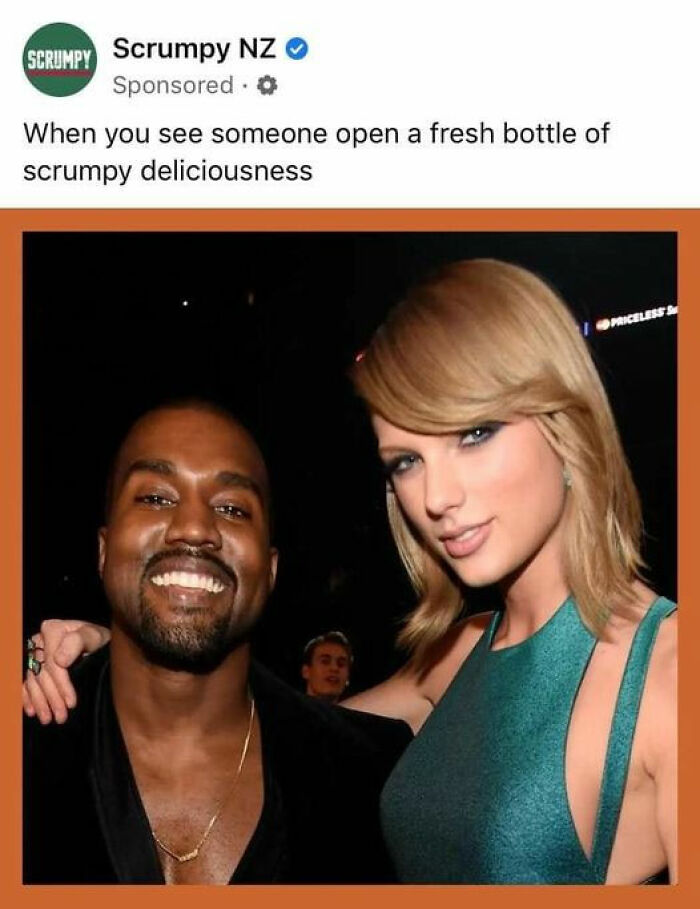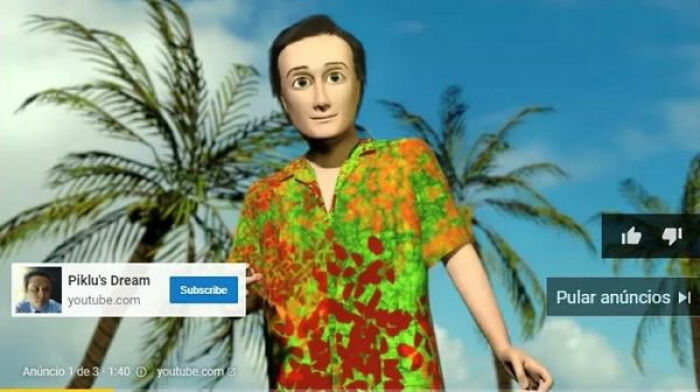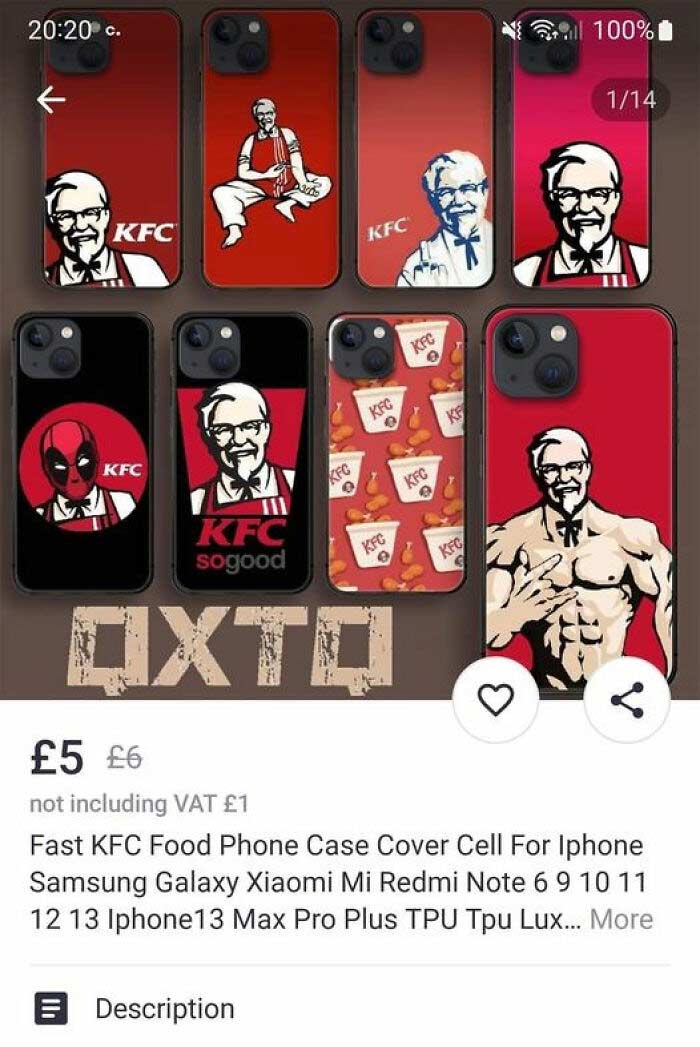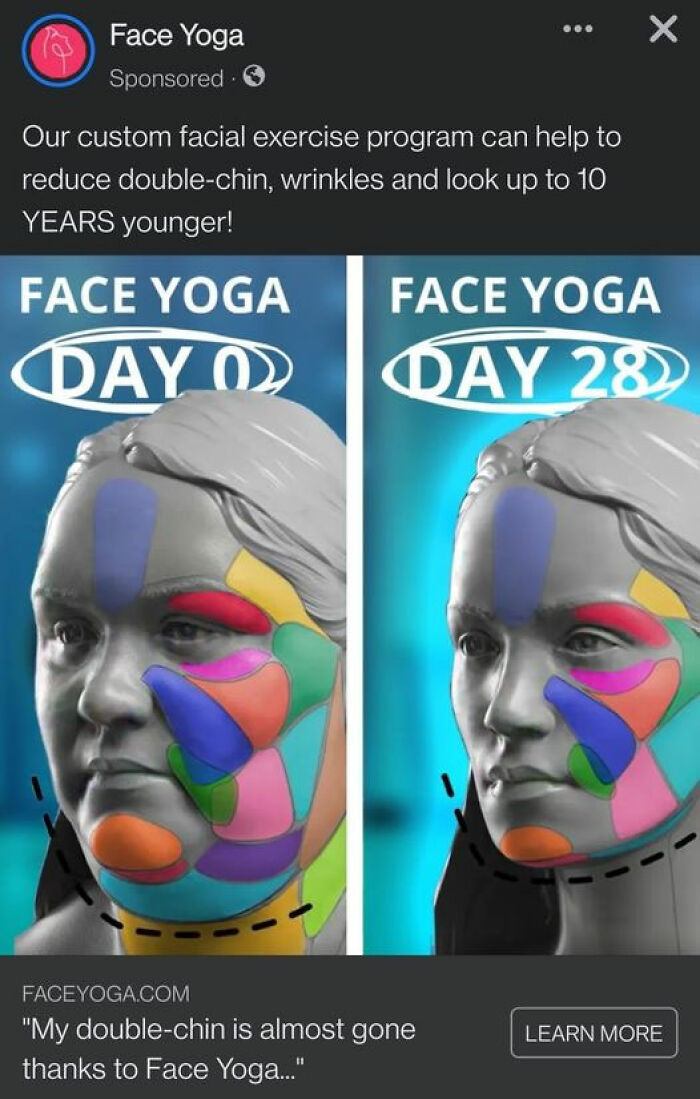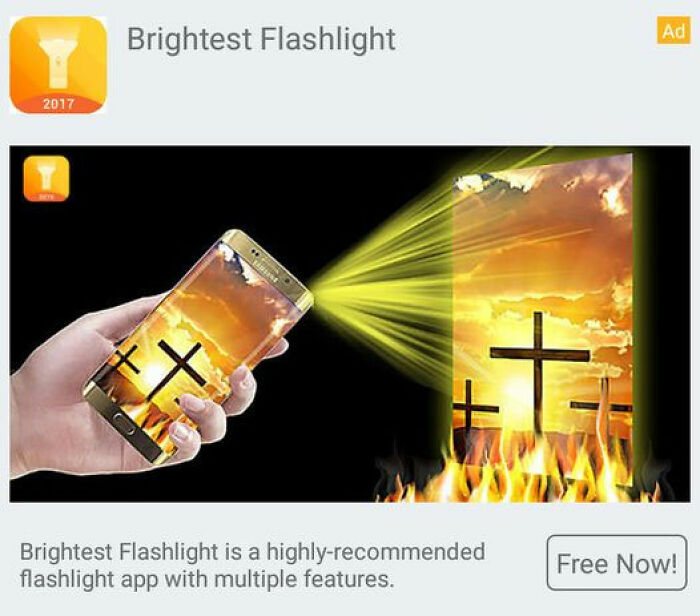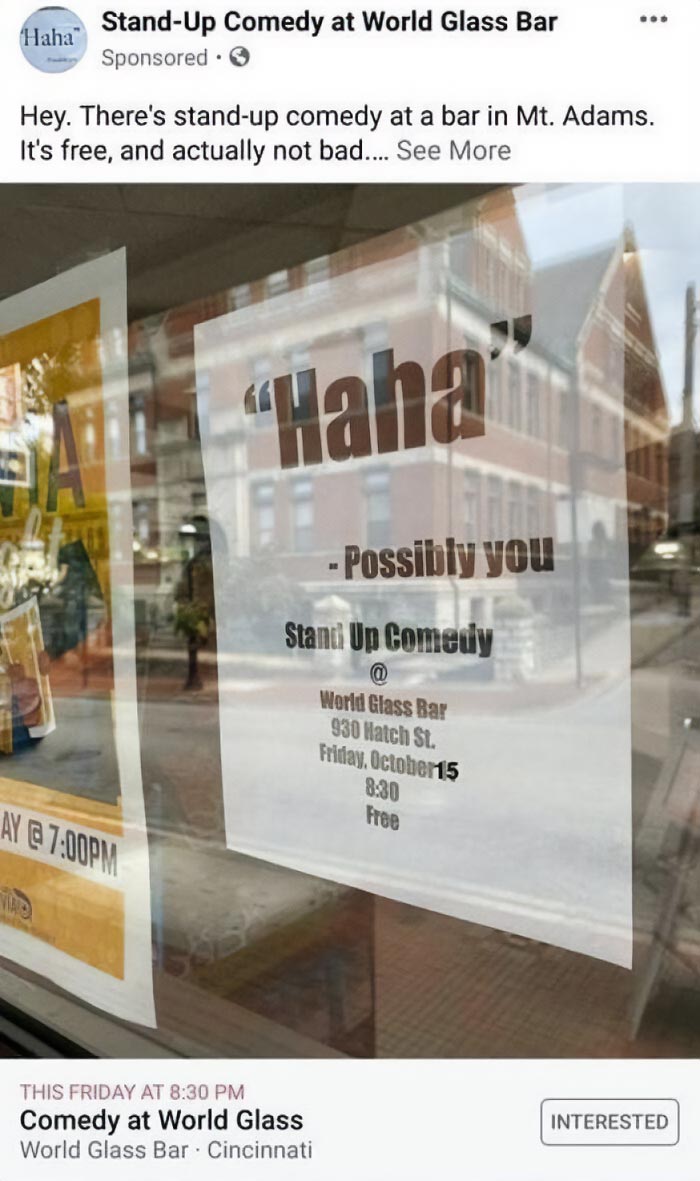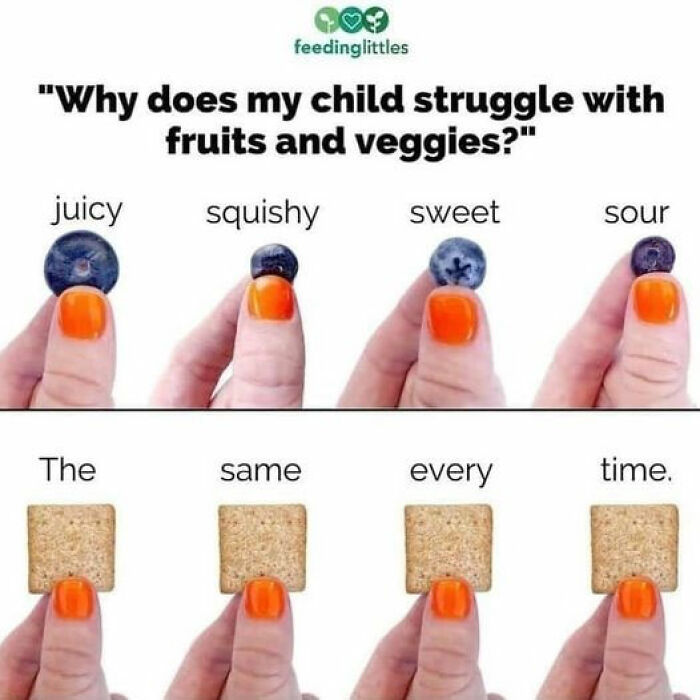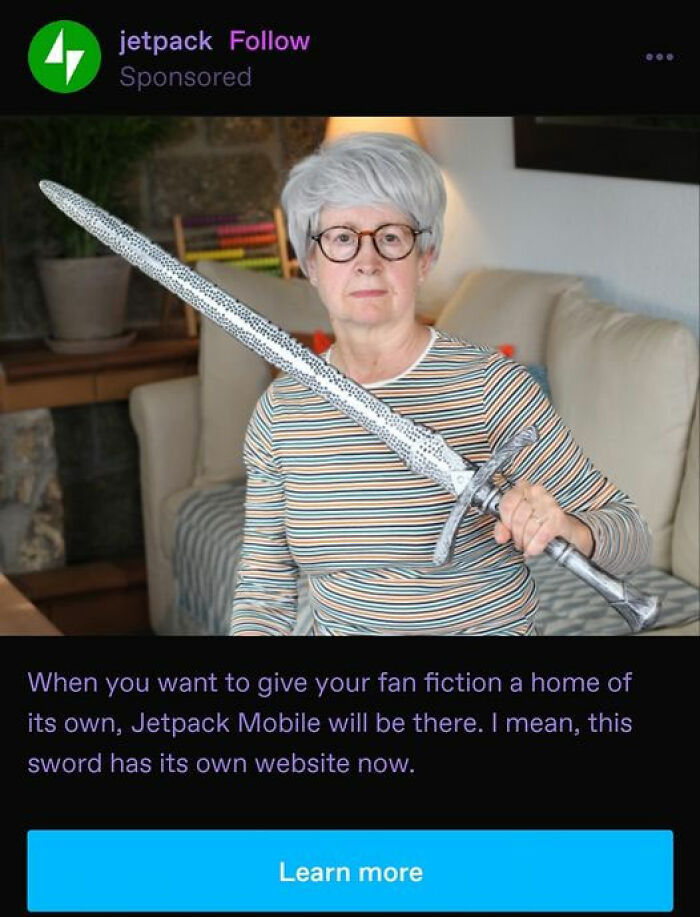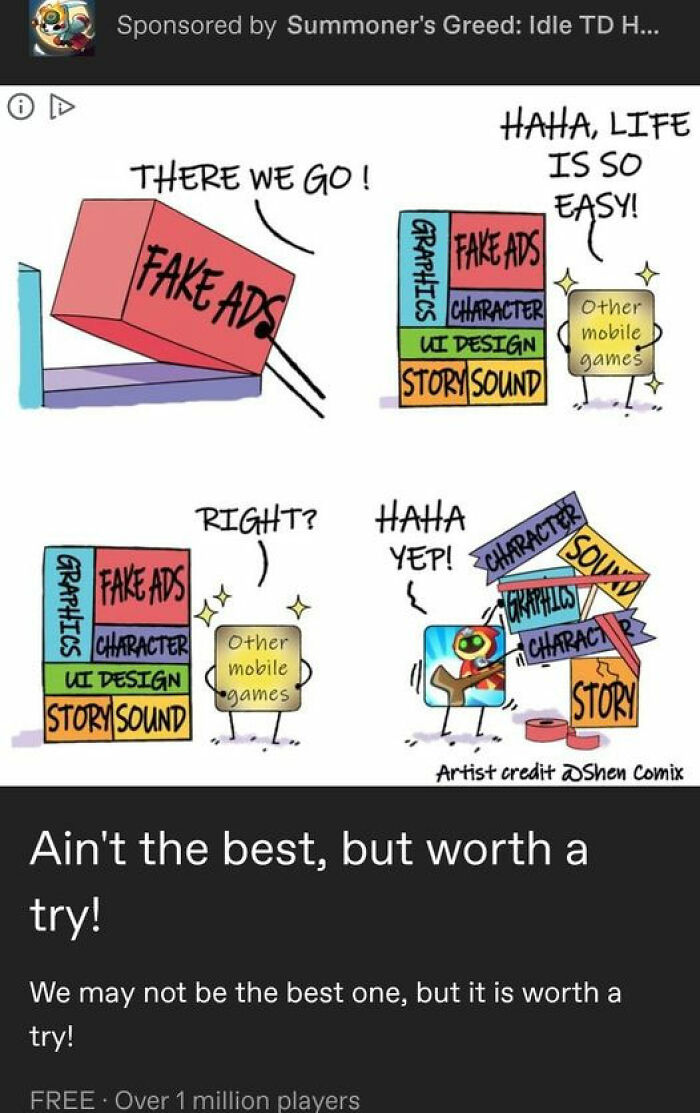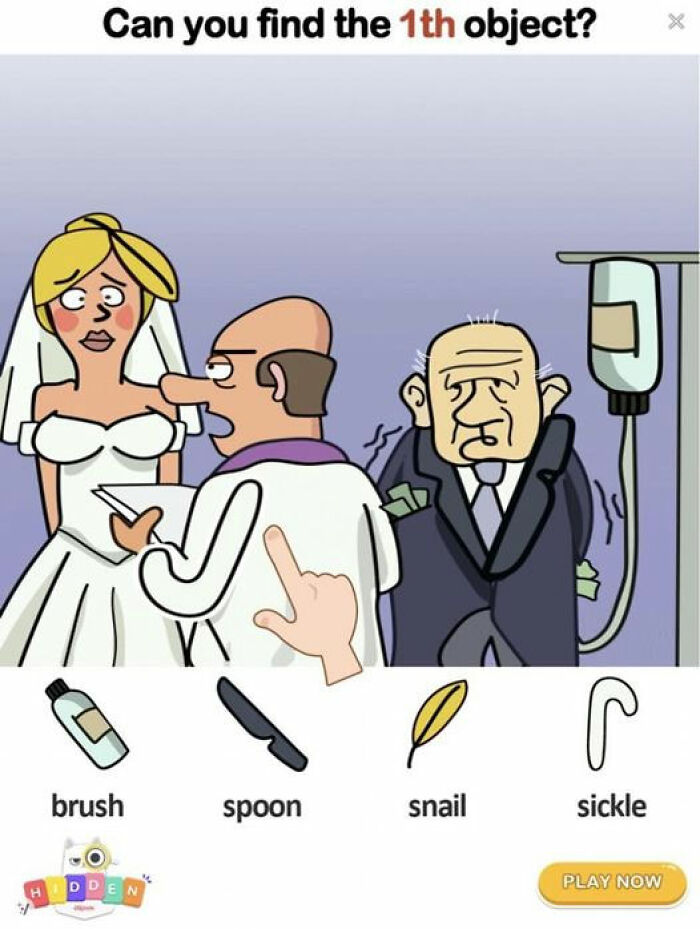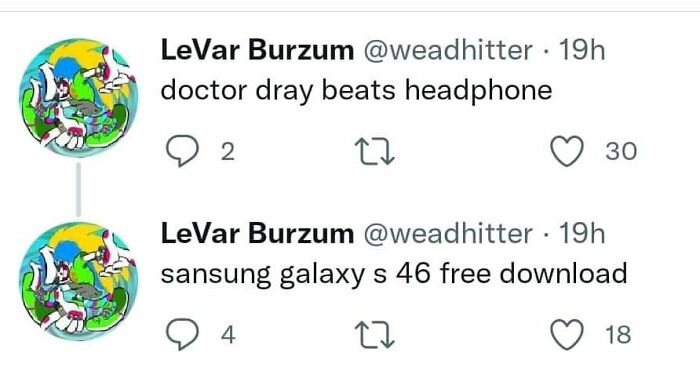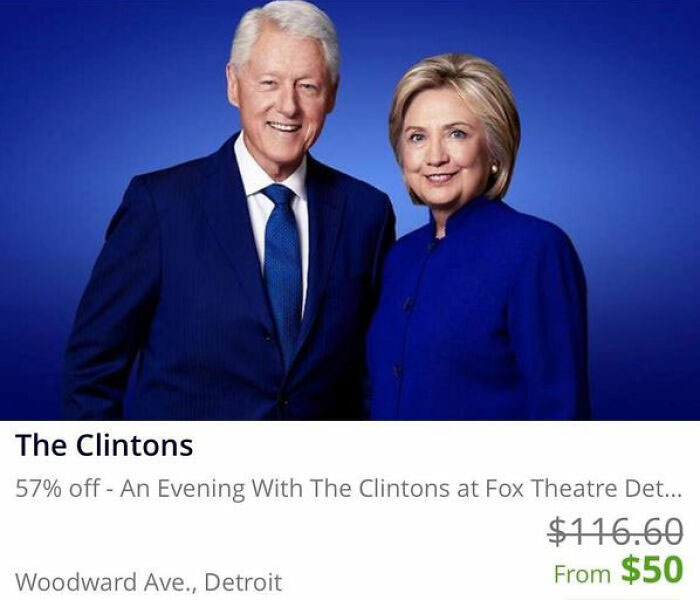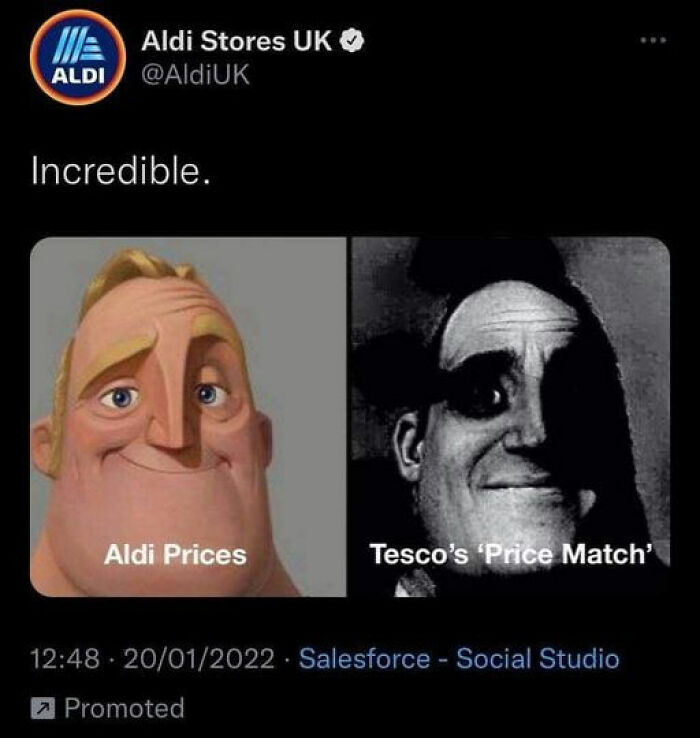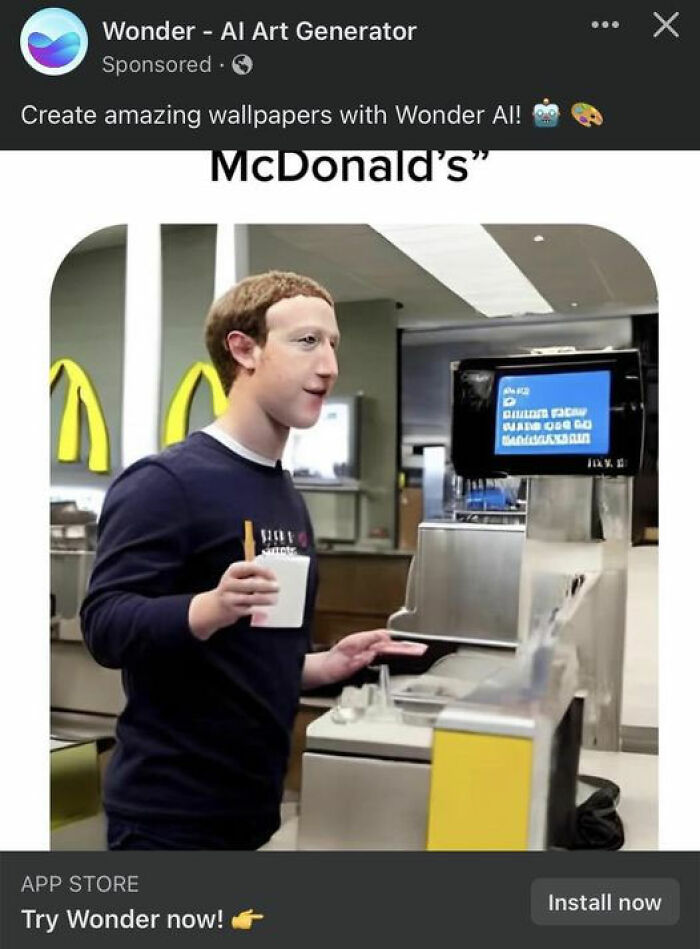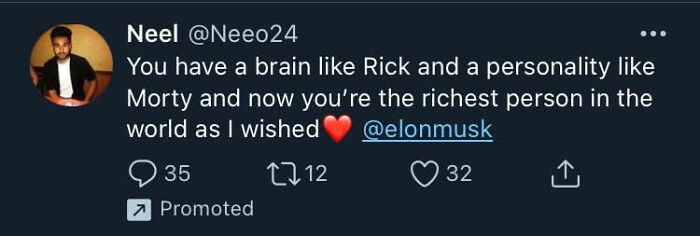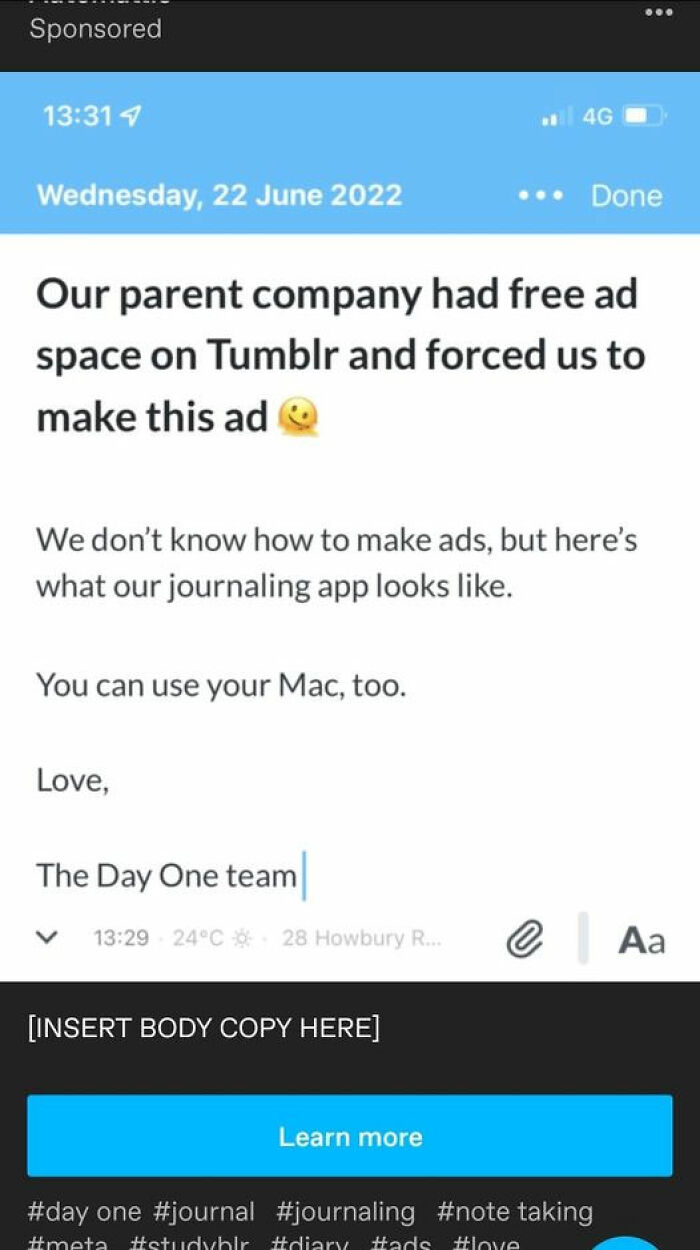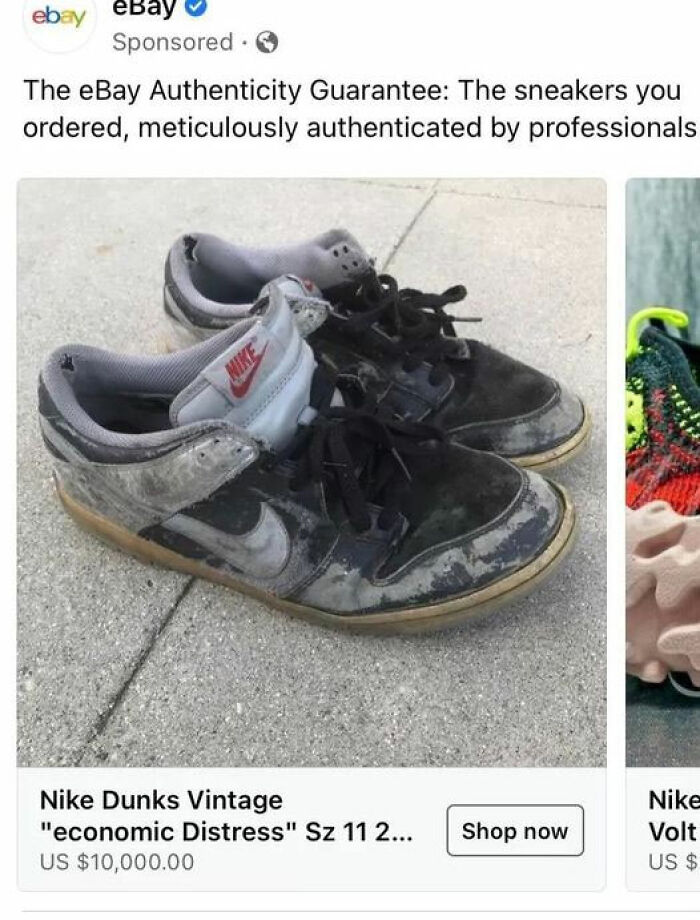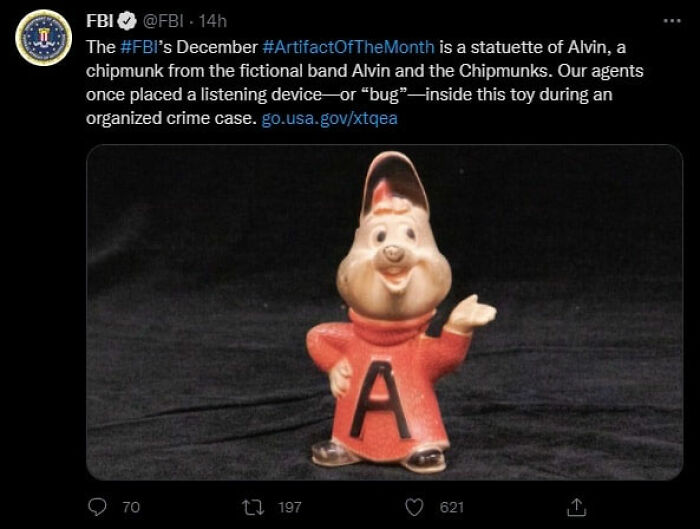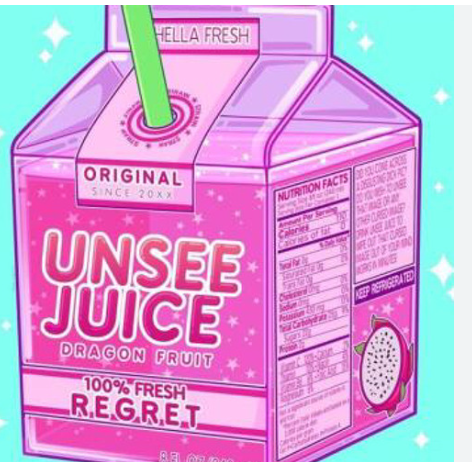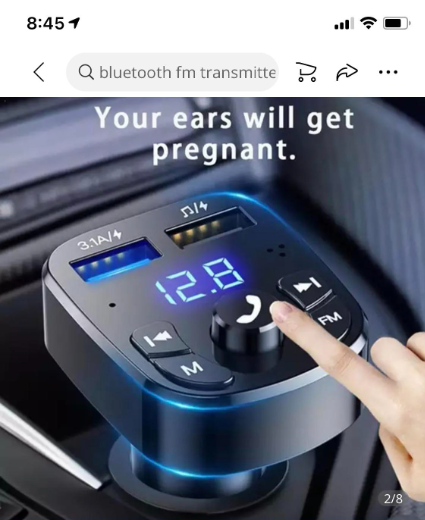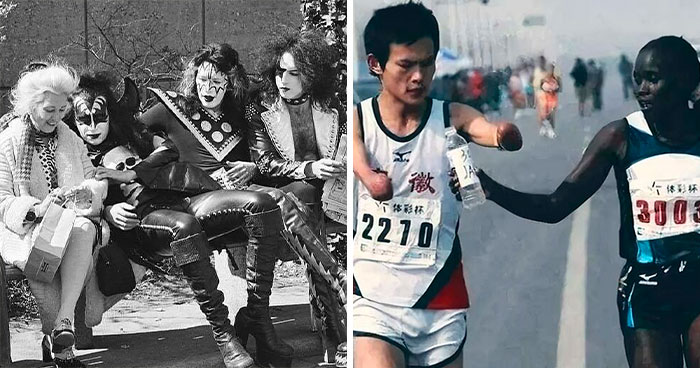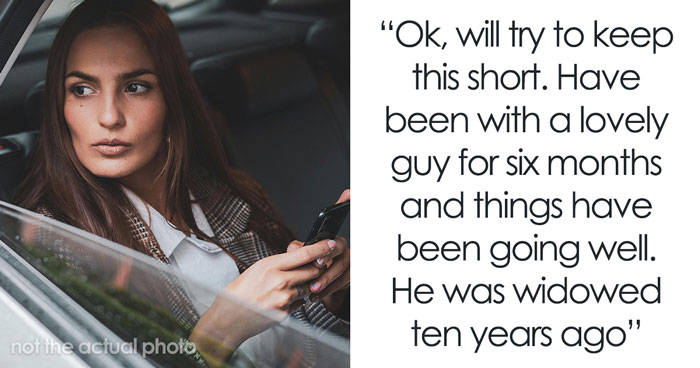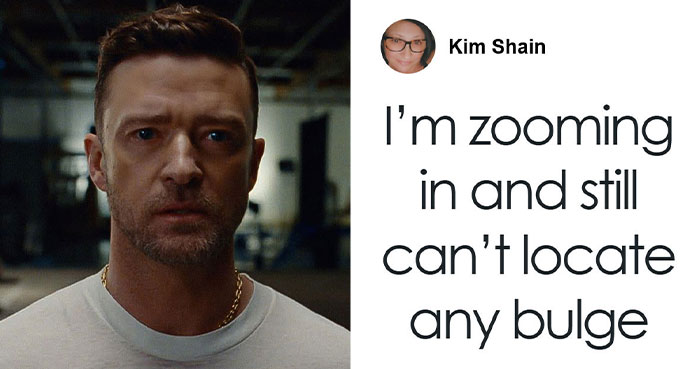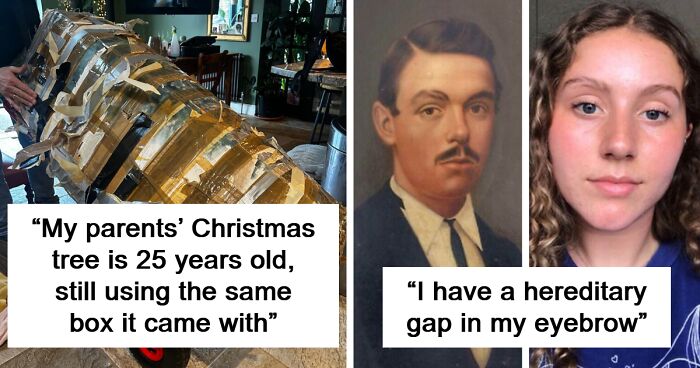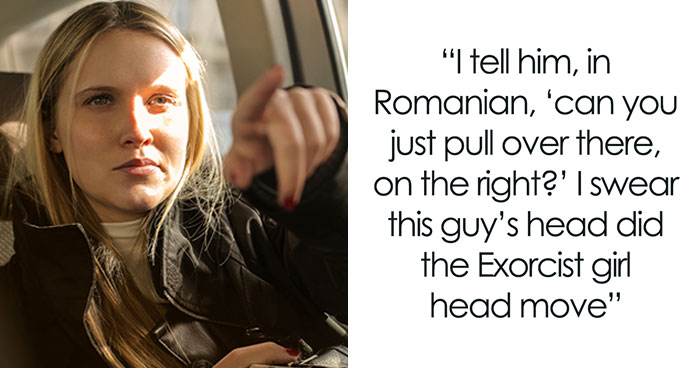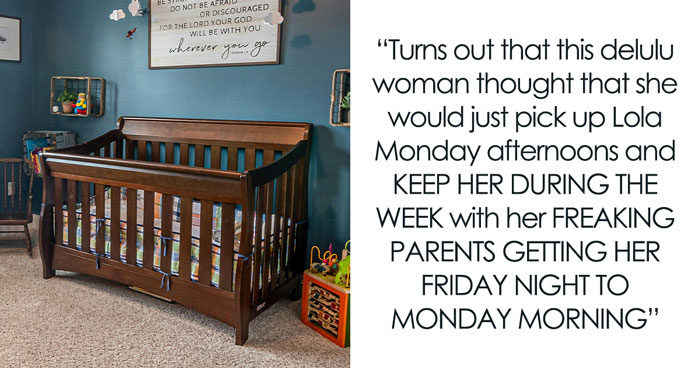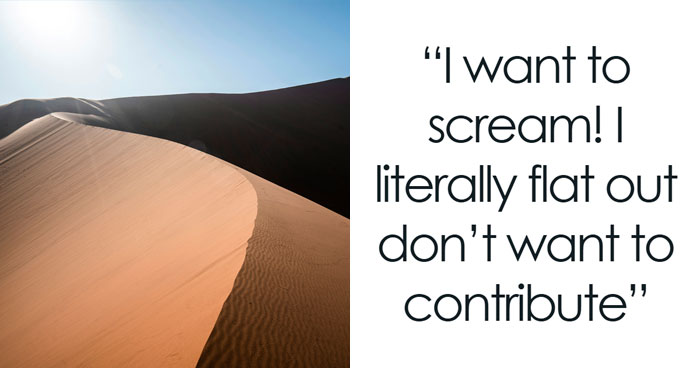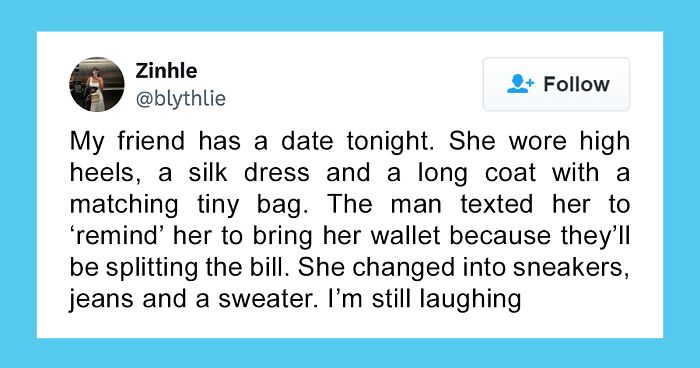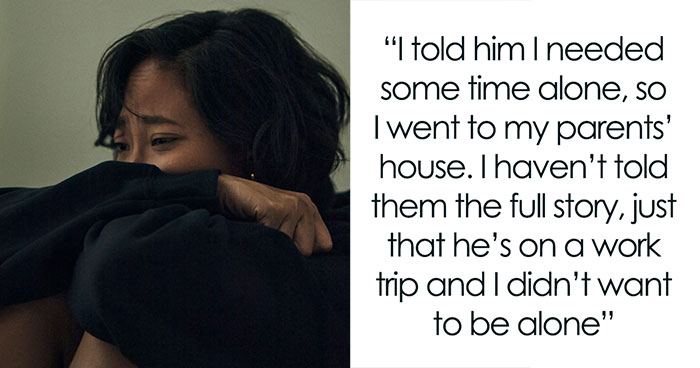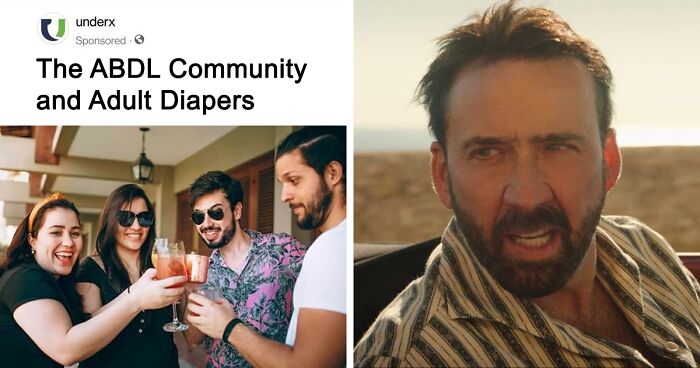
40 Ads That Tried But Missed The Mark In The Funniest Way Possible, As Shared By This Facebook Page
We all love browsing through our favorite websites and watching funny YouTube/TikTok videos. It's been this way since the dawn of the internet. But it's the ads that keep the lights on. They obscure your screen when you hit the homepage of your favorite website or try to watch a pesky five-second clip, vying for our already-limited attention. The best part? Most of it is pretty crummy, leaving us unsure if it's a meme or a legit advertisement.
That's why, with the junk-ad epidemic that plagues both the digital and our realm, we think the Advertisements that look like [rubbish]posts community is a godsend. With 36,000 dedicated trashy-ad aficionados, it gathers the crummiest of them all "just for fun". A fun, hate- and spam-free corner of the internet where you are not forced to eyeball an absurdly comical ad for an entire two minutes before scrolling further? Sign us up!
This post may include affiliate links.
Take a moment and consider the amount of tacky, poorly-made ads you see each day. And we are not talking about the ones you see on billboards or TV, with actual people giving them a green light. Some of these ads are trying to sell you on "miracle cures" that promise to "remove evil and negative energies from your life." Other ones seem like they were made by aliens confident that they've gotten the hang of how earthlings work. They might simply be made by AI, for all we know.
The point is, they're everywhere. And while the improvement in technology - and steep decline in our digital privacy - has promised to improve user experience with personified advertising, it's become even worse somehow. In 2007, for example, it was estimated that the average consumer saw up to 5,000 ads per day. And if that sounds "Black Mirror"-ish, hear this: the average person today is estimated to encounter between 6,000 to 10,000 ads every single day. That's twice as much as it was in the 2000s.
The worst part: more than 90% of spending on digital display ads today, according to Insider Intelligence, happens through automated software. Meaning that a lot of random, trashy advertisements fight for your attention each day because the screening process is just as susceptible to questionable advertisements as (some) people are to male enhancement ads and other "snake oil" promises.
Glad you took one for the team and googled it so we don't have to
Load More Replies...Adult Baby/Diaper Lover--Diaper fetishism, nappy fetishism or diaperism, is a type of garment fetish in which a person derives pleasure from wearing and/or using a diaper.
If it were adults with medical incontinence issues, I'd be far less embarrassed for them.
Just a reminder: just because you don't personally see the appeal of something- especially something sex-related- doesn't mean that you should be mean or demeaning towards it!
While everything would be fine as it is - as long as these ads could be passed as mindless fodder we simply forget about in a flash - it's not. Because, it turns out, advertising makes us unhappy.
In order to understand what's the deal with ads ruining our already fleeting cheerfulness, Bored Panda spoke with Andrew Oswald, a Professor of Economics and Behavioural Science at the University of Warwick, who with his team delved into the correlation between advertising spending and life satisfaction among European citizens from 1980 to 2011. Armed with survey data gathered from over 900,000 people across 27 countries, Andrew was able to find out that the higher a country’s ad spend was per year, the less satisfied its citizens were likely to be in the next year or two.
I thought, "Dude looks worried." Then I saw he was talking to a toilet paper roll like it was a phone.
"I view it as potentially consistent with common sense because the purpose of the advertising industry is to make humans dissatisfied with what they already have so that they pay out money to purchase new items (whether they truly need those items or not)," Oswald explained. To make a point, he told us that while he was typing this, a men's fashion company sent him an ad for a suit ("I already have lots of suits in my wardrobe.")
I like it. 950 is a little out of my price range, but I have boots, hair extensions, and a hot glue gun.
As we noted earlier, since Andrew's research concluded, the number of ads that bombard our peripheral vision each day has only doubled. Does that mean we will progressively get less and less happy as long as this continues?
It's quite possible, unfortunately. "We have allowed this to happen. I see a future world where we are bombarded by ever more adverts in even more sophisticated ways," Oswald argued, thus bringing to mind a Subway corpo-humanoid, a spokesperson for the brand who quite literally became the product he endorsed, in the hit TV show "Community."
At this point, you're probably thinking, "Is there a silver lining to all this?" Yes, the fact that advertisements directly affect our general happiness and governments allow this to continue is kind of maddening. But
In an era of ever-evolving advertising, finding a way to escape the endless stream of trashy ads can feel like a Sisyphean task. The struggle is only getting harder, too. Twitter recently put the kibosh on third-party services like 'Tweetbot' and 'Twitterific', which helped many users dodge unwanted ads (thanks, Elon). Then, a promising project that blocked YouTube ads (called 'Vance') was also forced to shut down in March 2022.
And if you thought YouTube was a safe haven, think again: the platform recently conducted an experiment that led to viewers being subjected to up to 10 unskippable ads in a row. It's not just YouTube, either. According to a survey done by Insider Intelligence last fall, over half of Facebook users reported seeing more ads on the platform, with nearly half of YouTube and Instagram users reporting the same.
“big k**b energy” do you think there’s multiple people compensating for something?
So, does this mean that we're all doomed to live in a world where ads follow us everywhere we go, lurking around every digital corner, making us miserable each day? Not necessarily. According to Oswald, injecting a little humor into advertisements can make all the difference. "A humorous advertisement is better than a non-humorous one," he said.
It's he's absolutely right. While only 20% of brands report using humor in their offline ads, 90% of people said they might remember an ad better if it tickles their funny bone, “The Happiness Report” found out.
It may not be a perfect solution, but it's certainly a step in the right direction. As long as we're forced to endure crummy online ads, such as this gem, a little laughter just might be the saving grace we need.
Why are these always so specific... my favorite (as in, the most ridiculous one I've seen) says something like "Never mess with a man who was born in March, drives a forklift, and has three kids"
In response to the ad: It means that Trump is running for president again.. sad days
The inside of my head looks a bit like this. Terrible chaos and insanely useless thought flows around.
I lost the will to live and stopped at 28. How did the rest of you do?
I love how the initial first few paragraphs the author tried to censor shitpost but the source of every image isn't censored
I lost the will to live and stopped at 28. How did the rest of you do?
I love how the initial first few paragraphs the author tried to censor shitpost but the source of every image isn't censored

 Dark Mode
Dark Mode 

 No fees, cancel anytime
No fees, cancel anytime 



